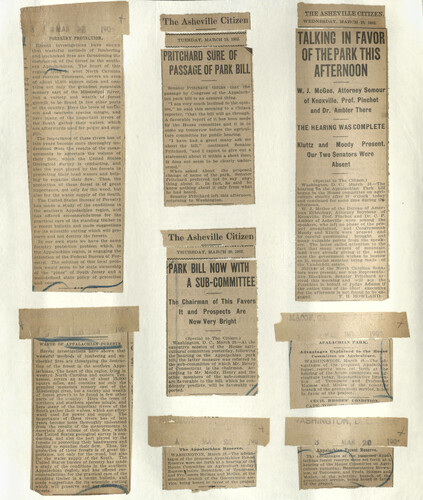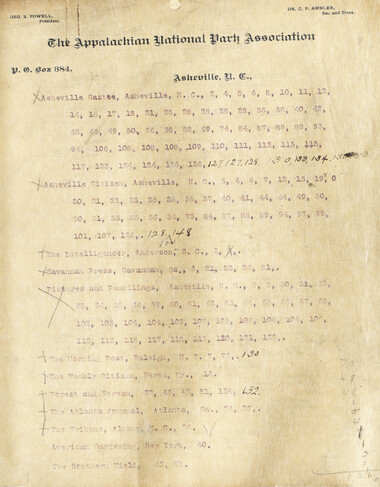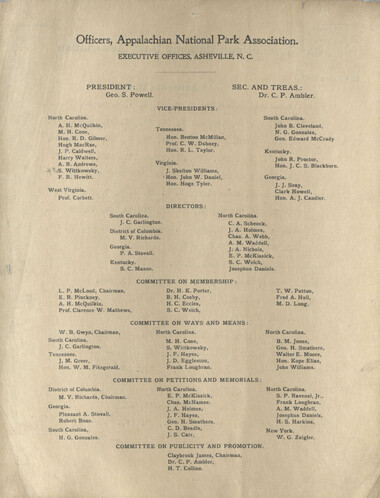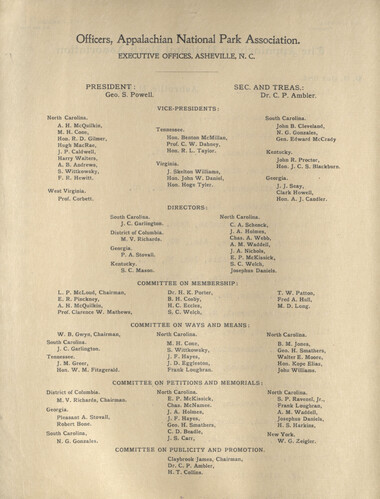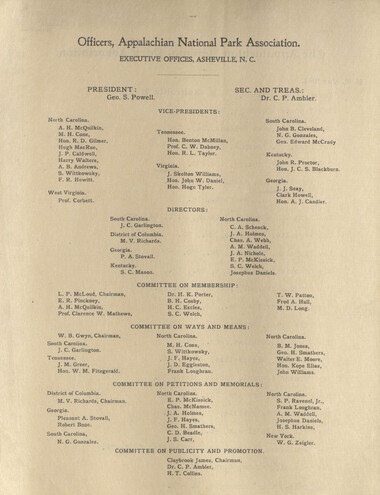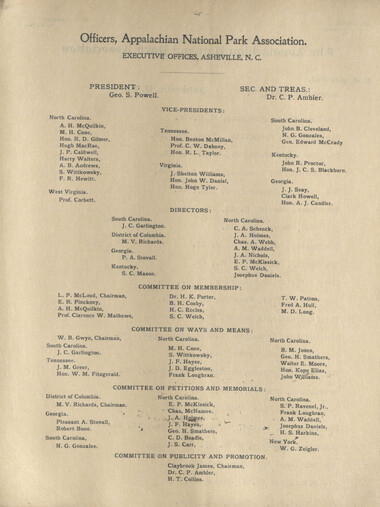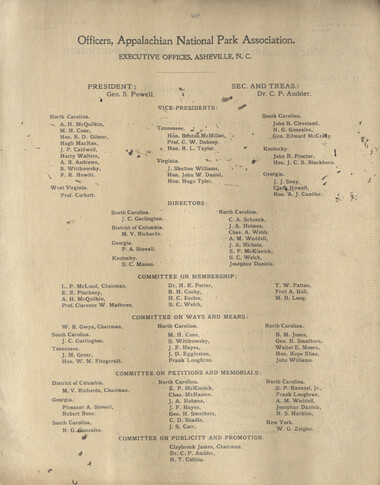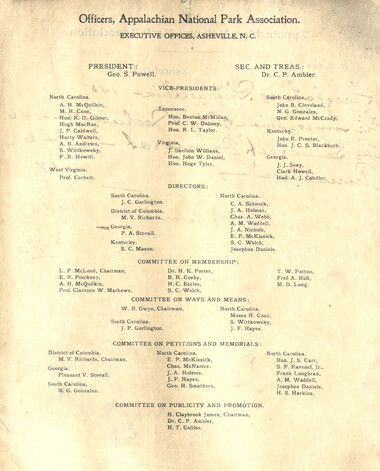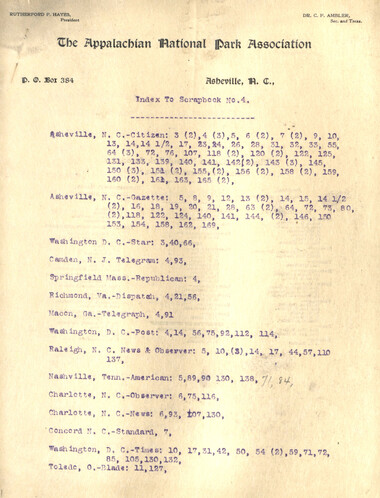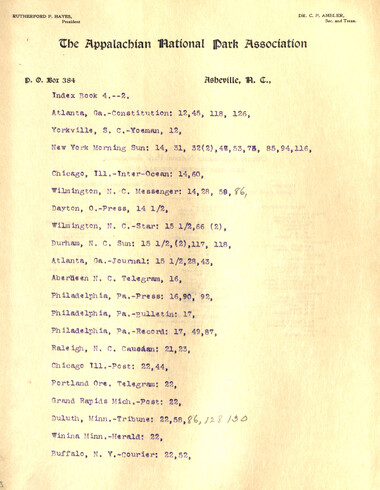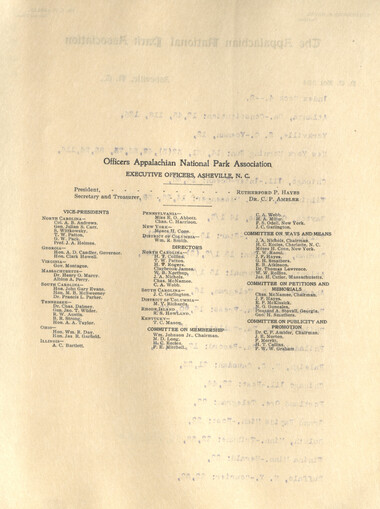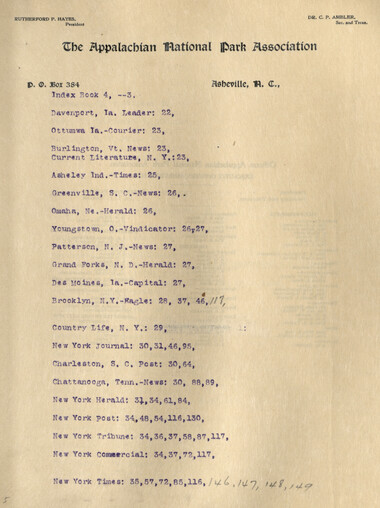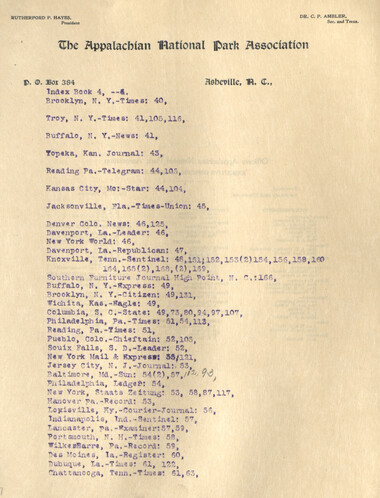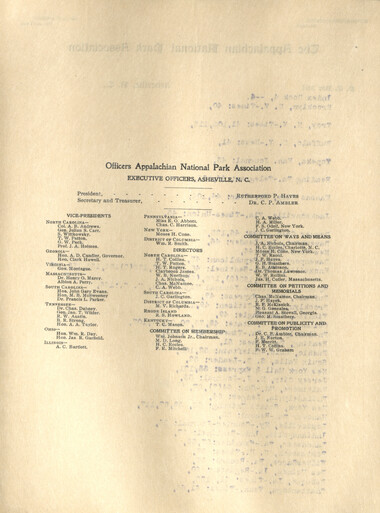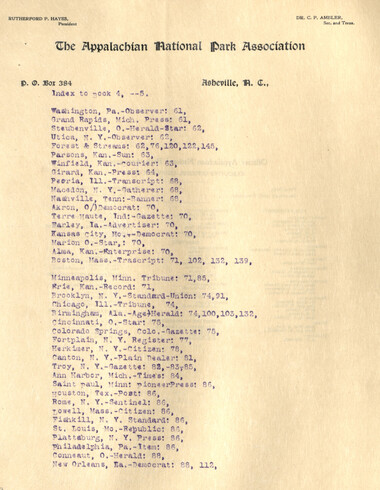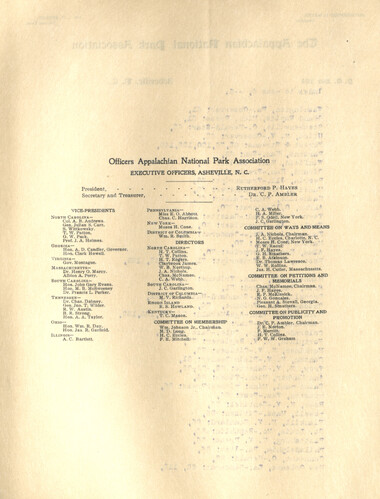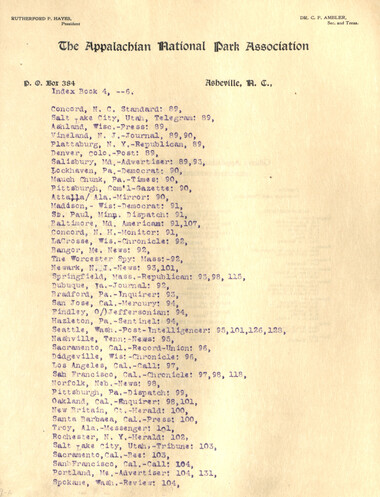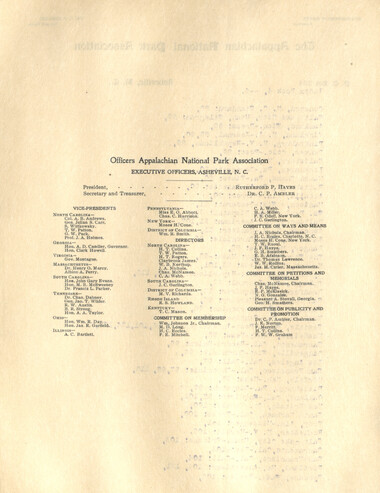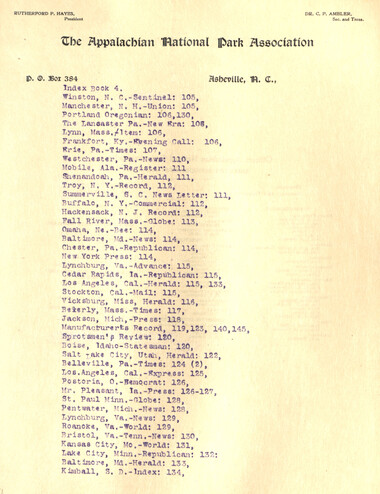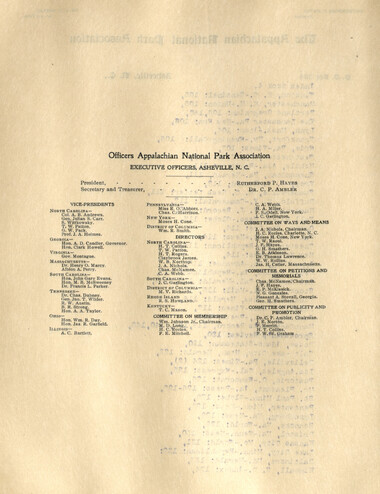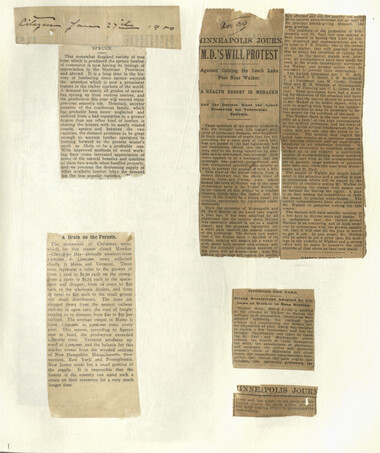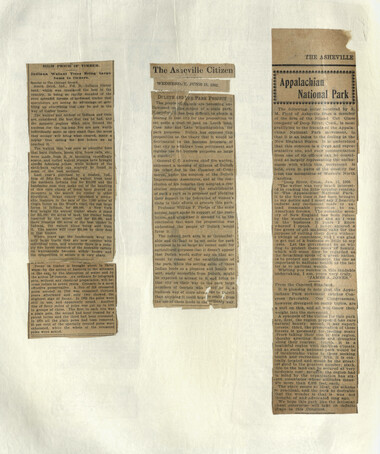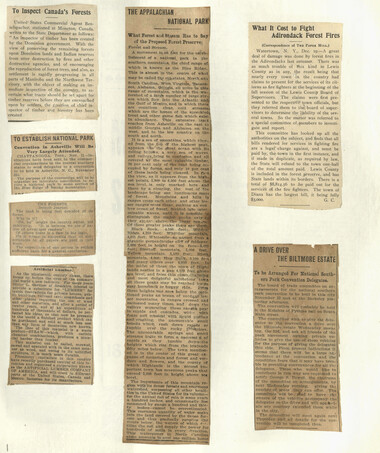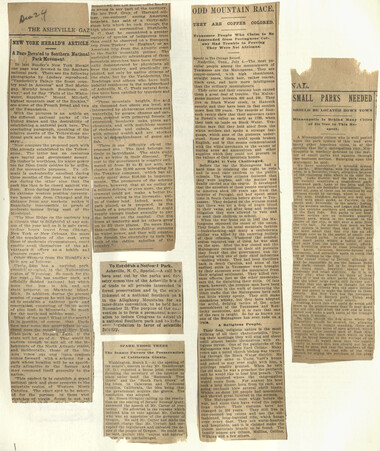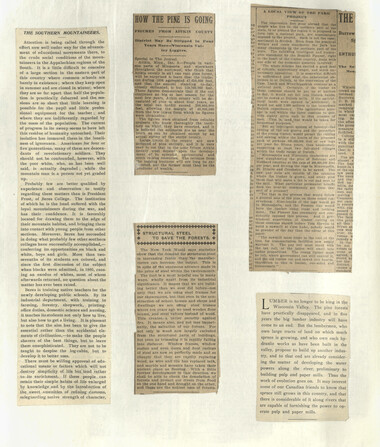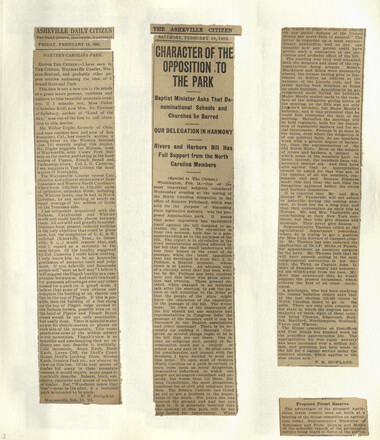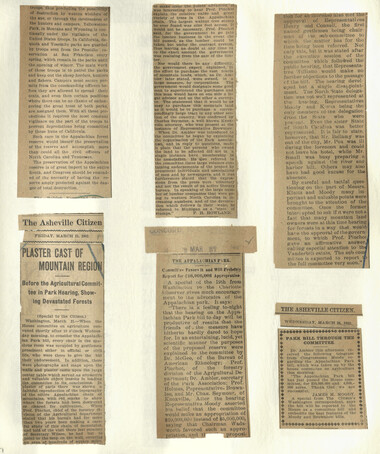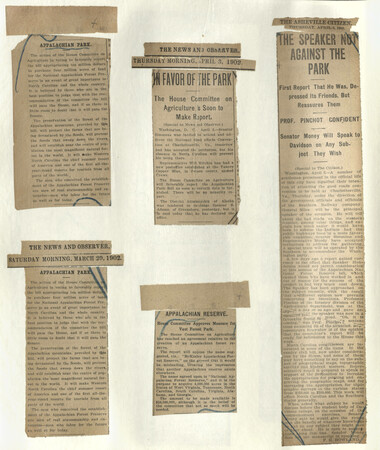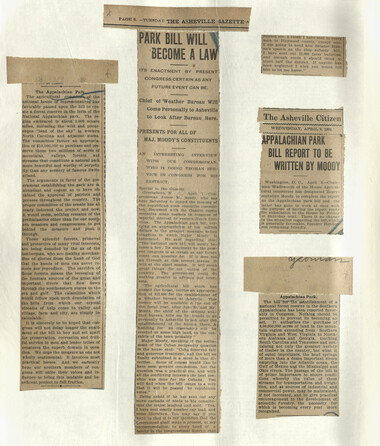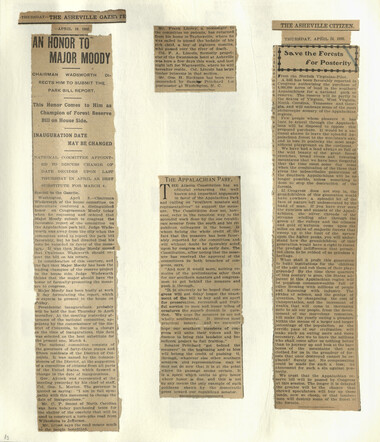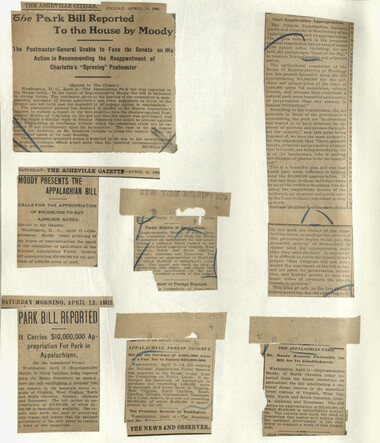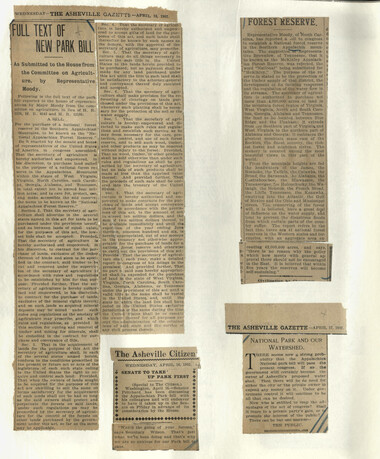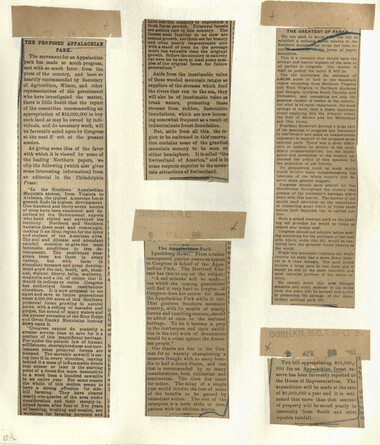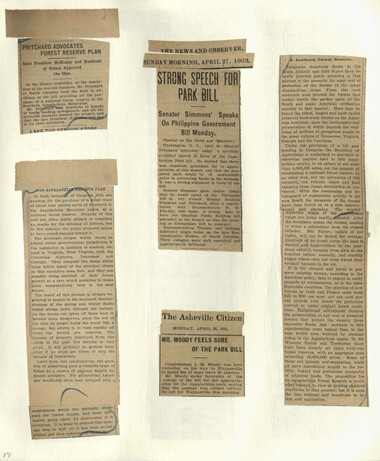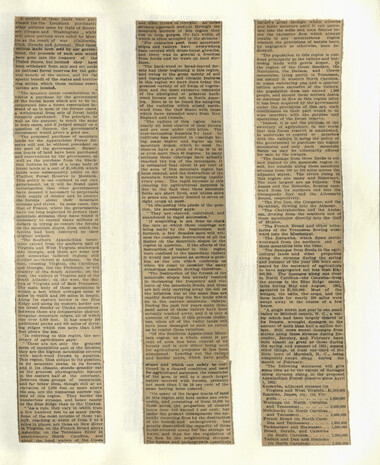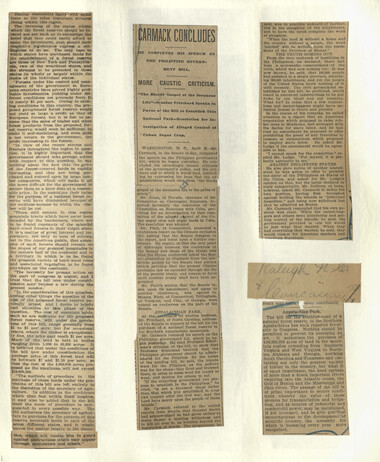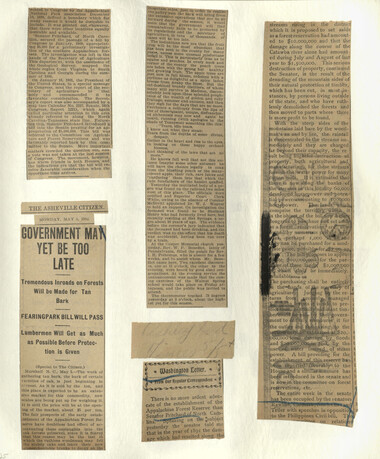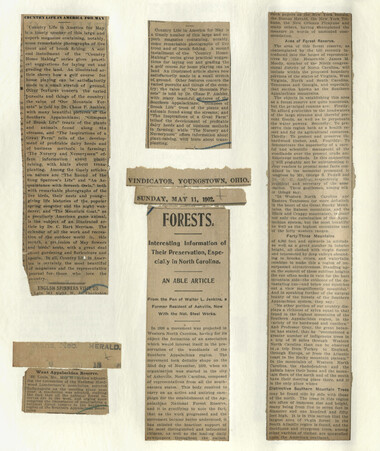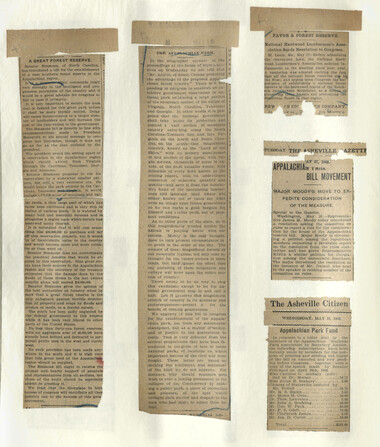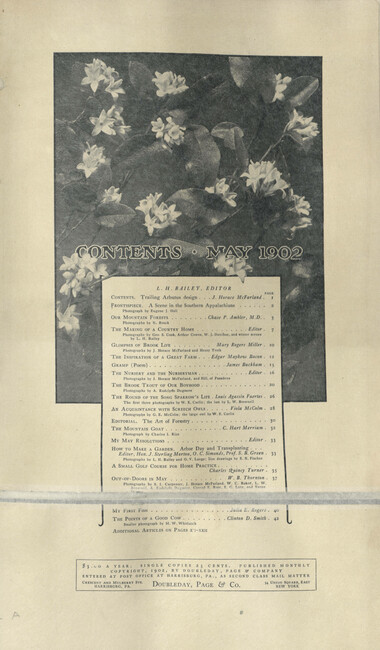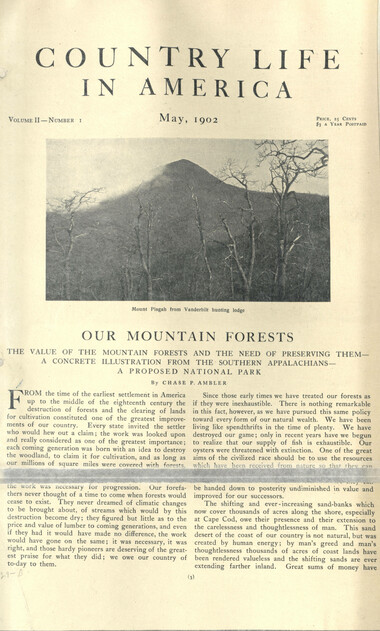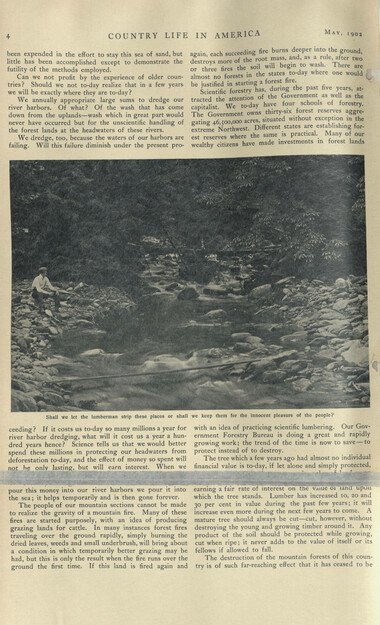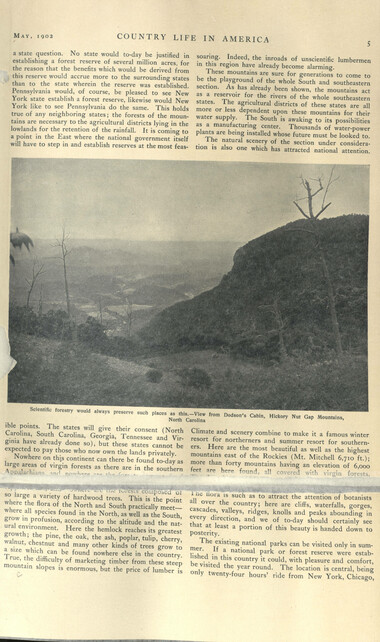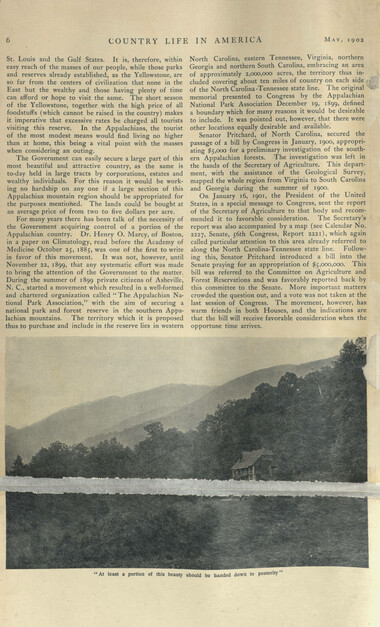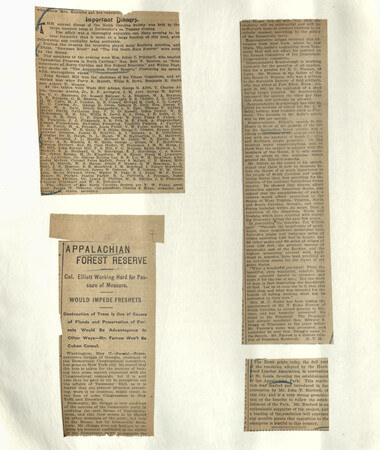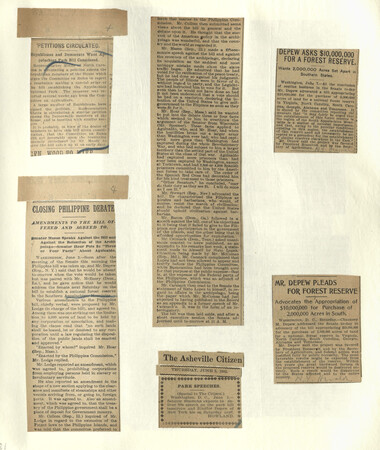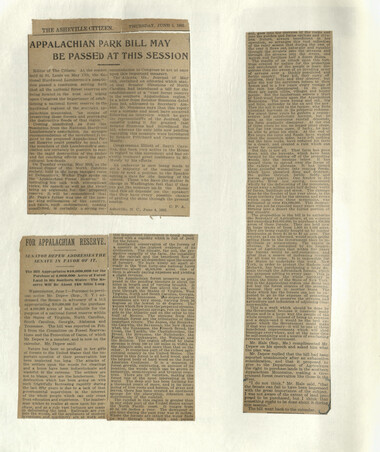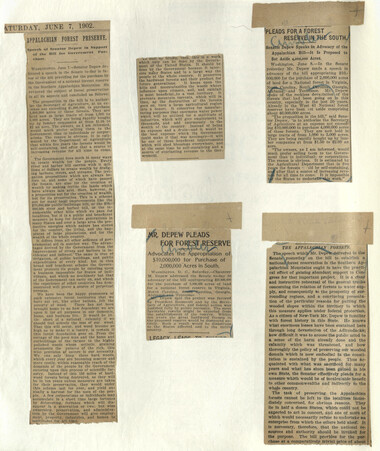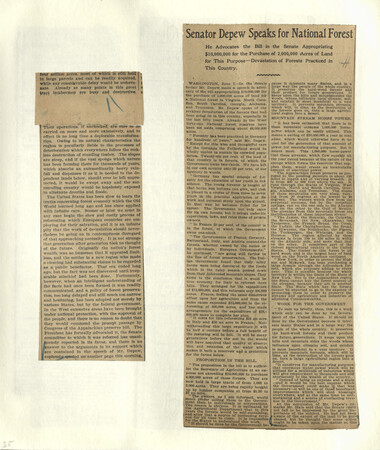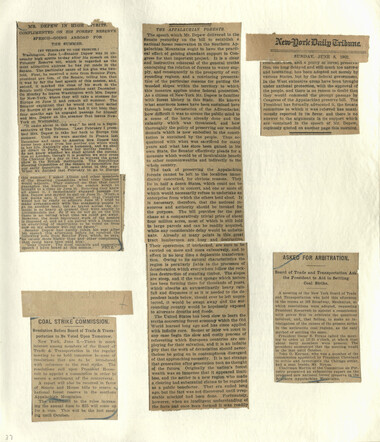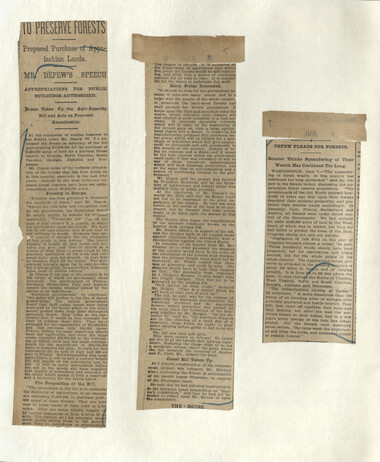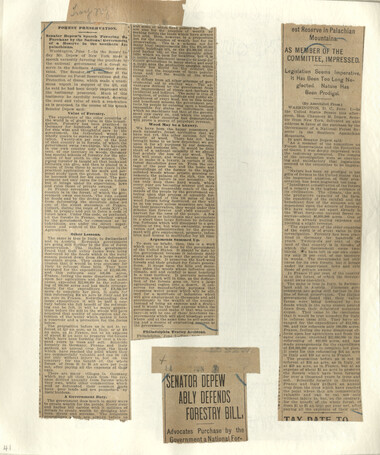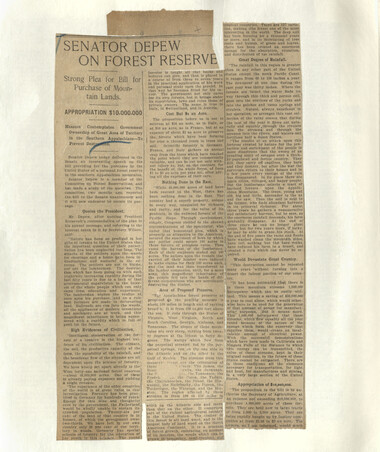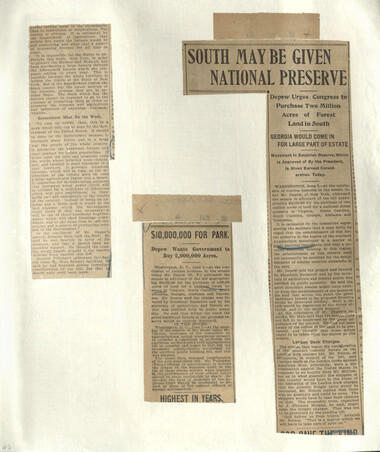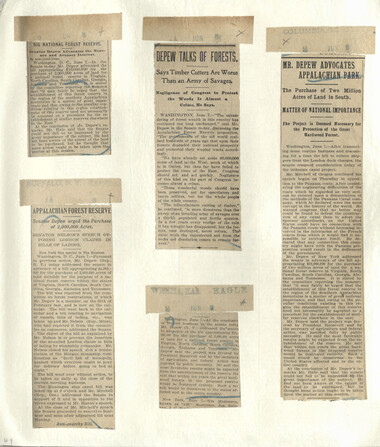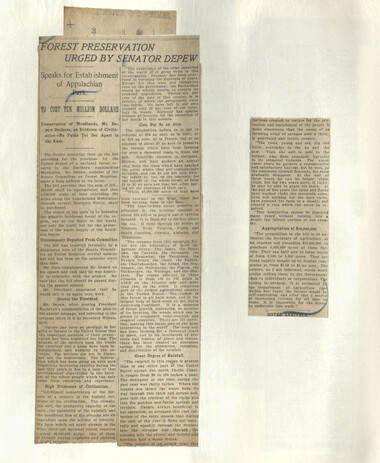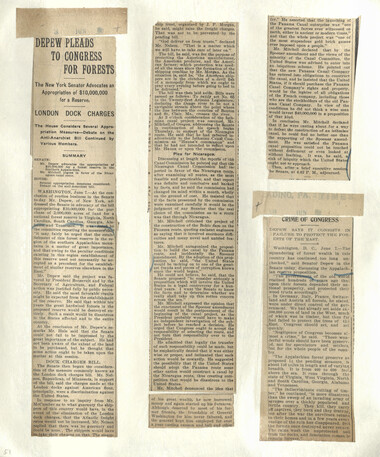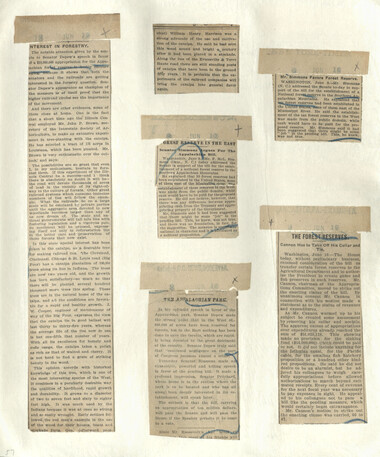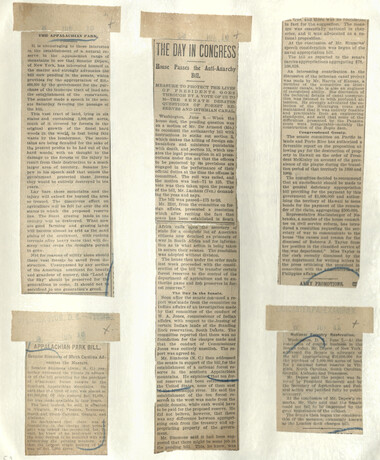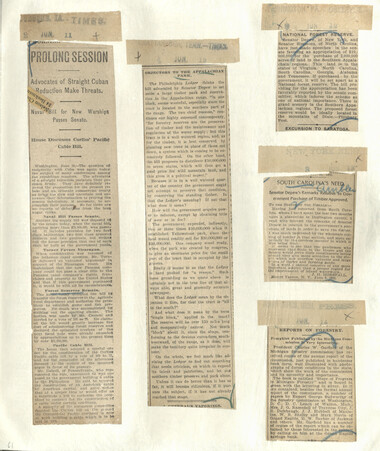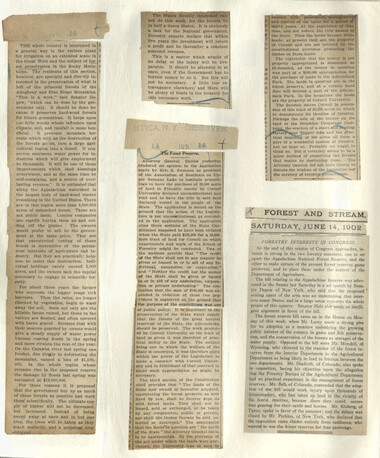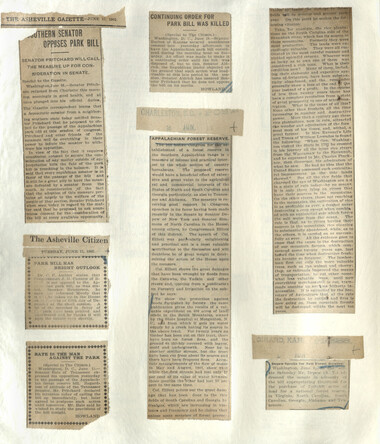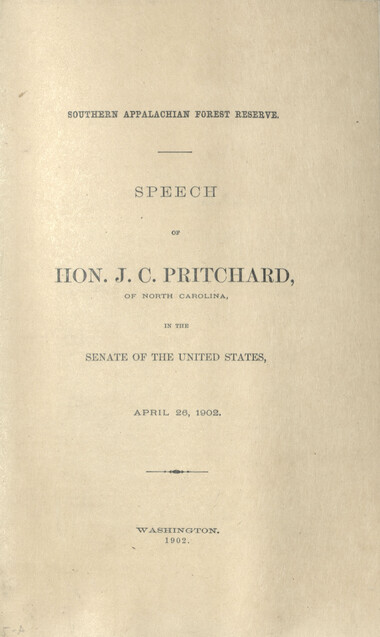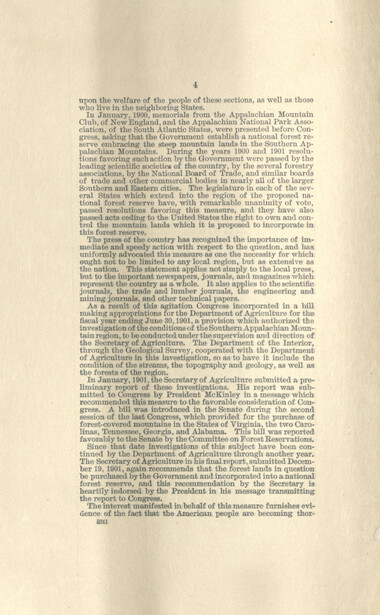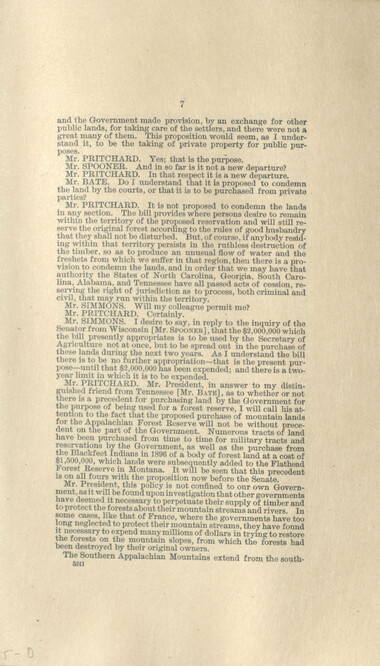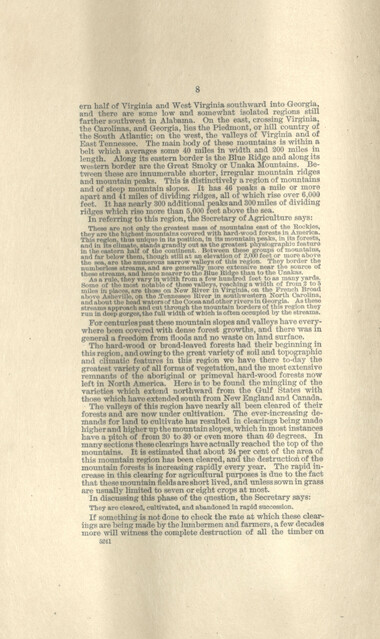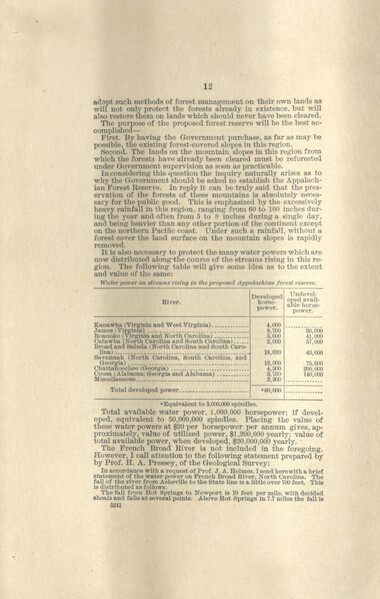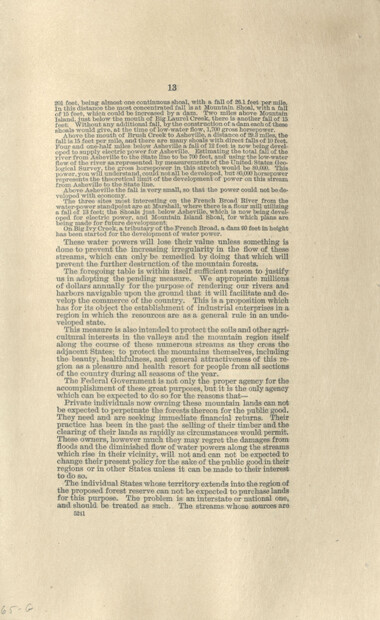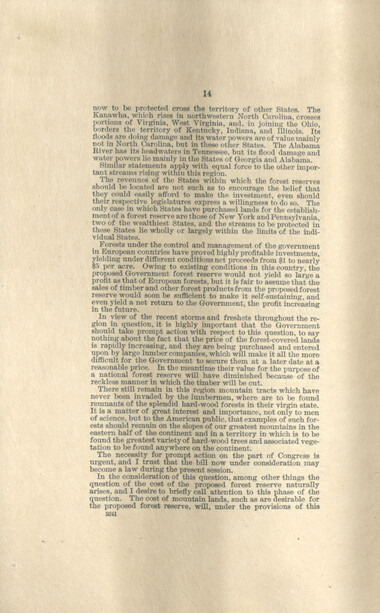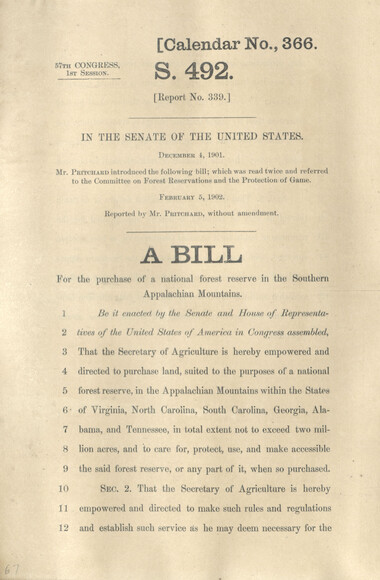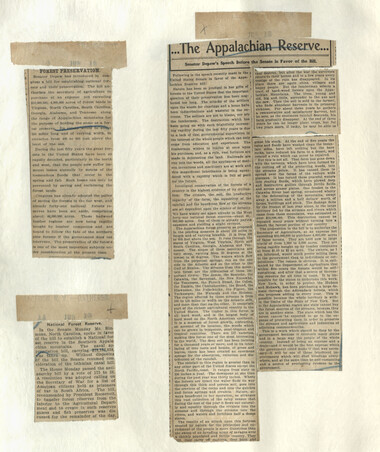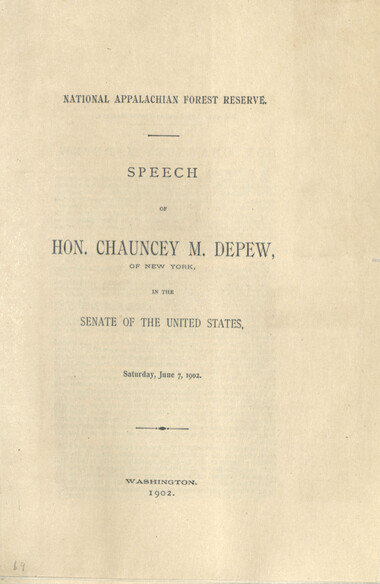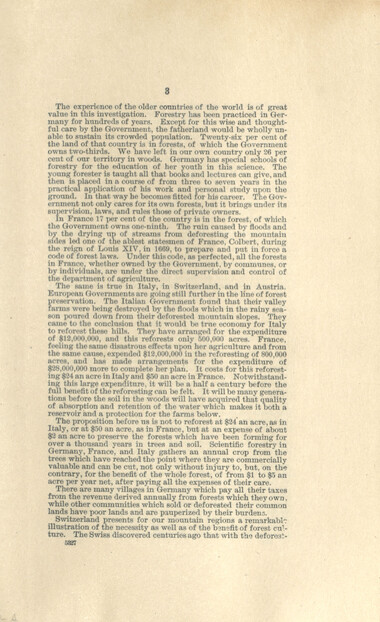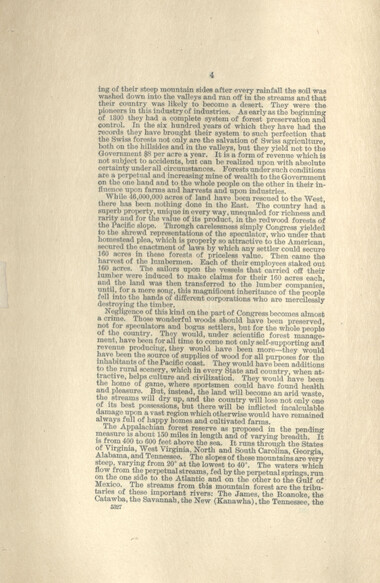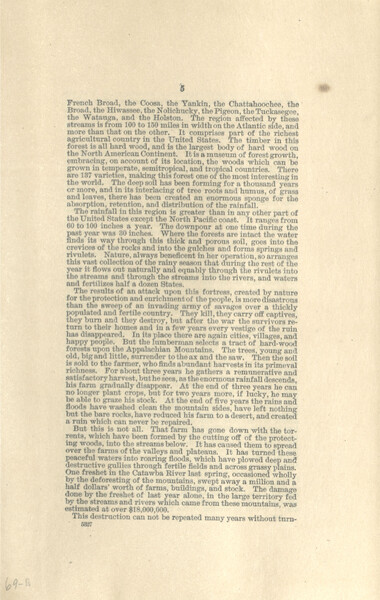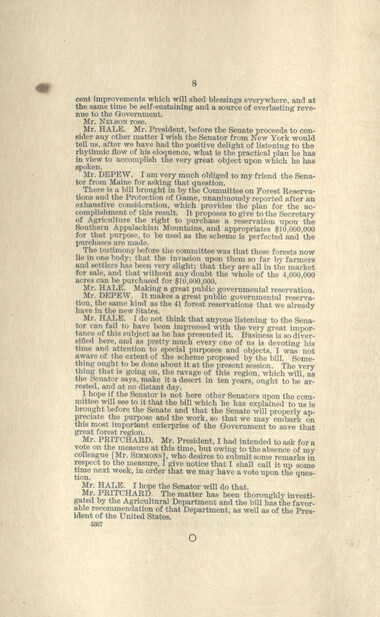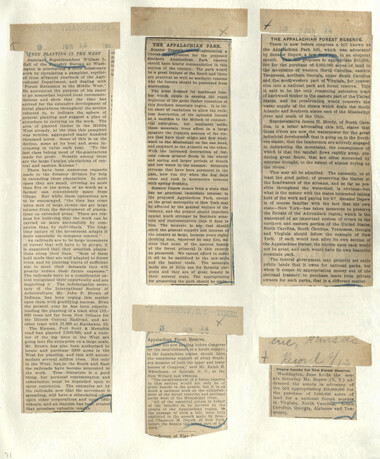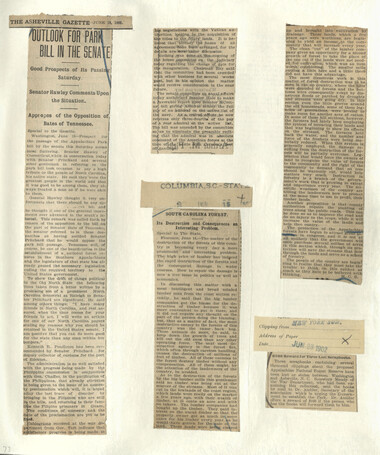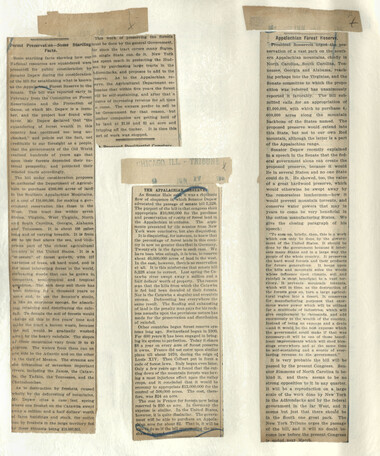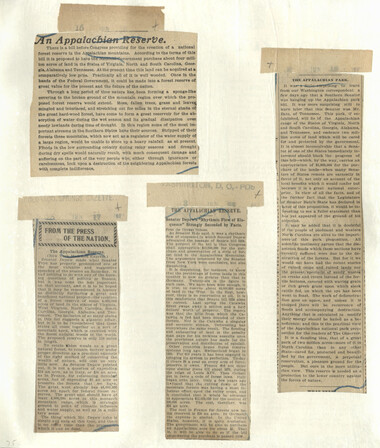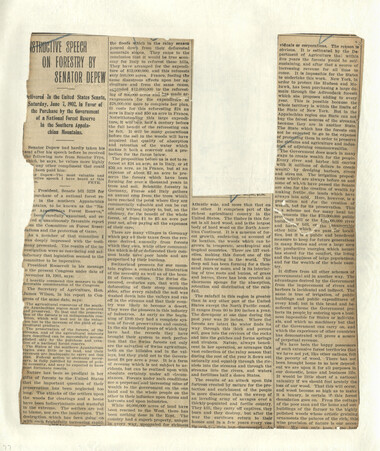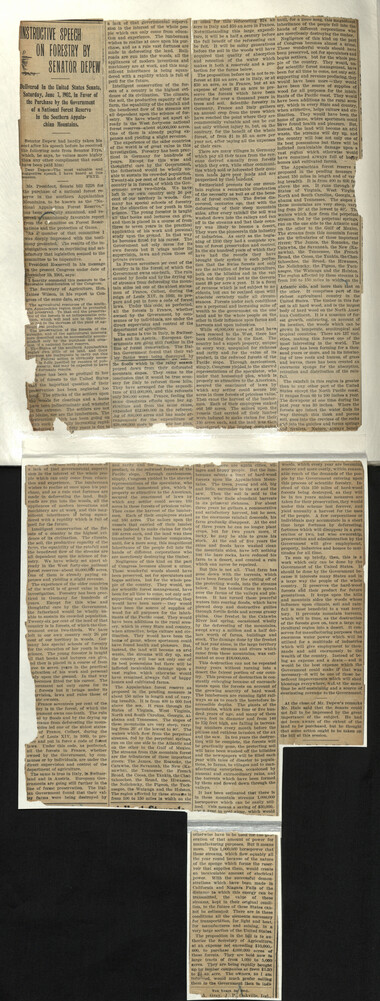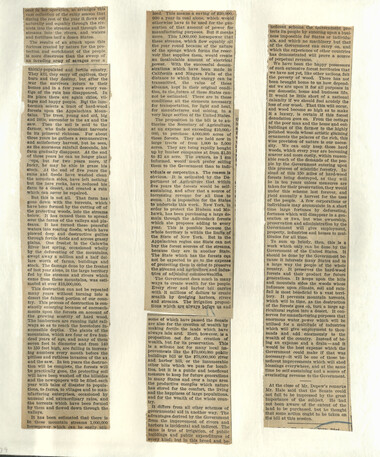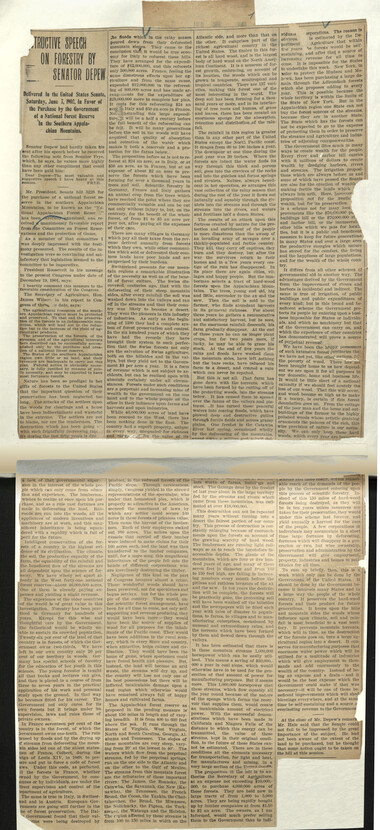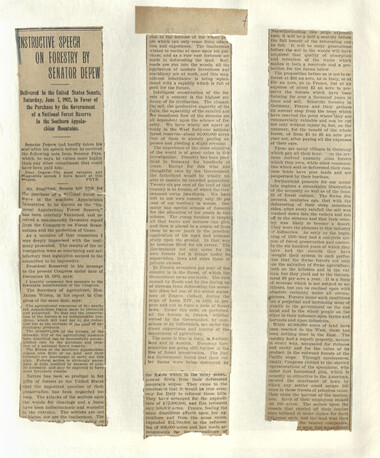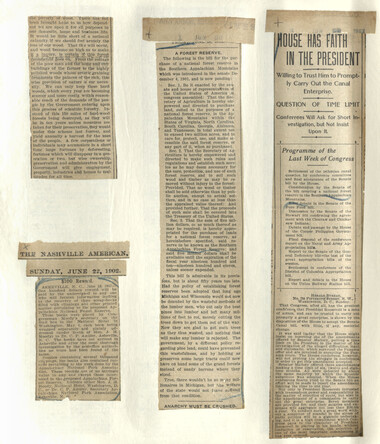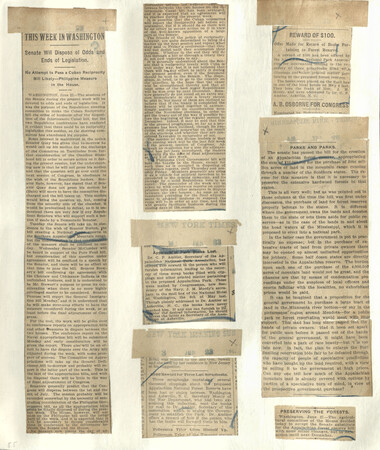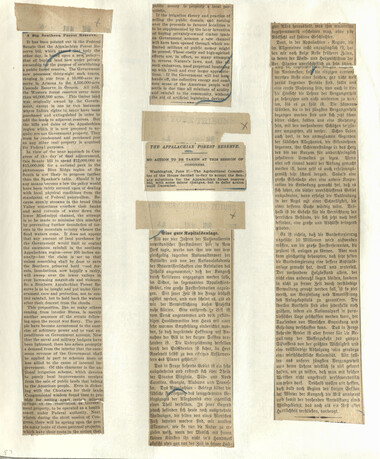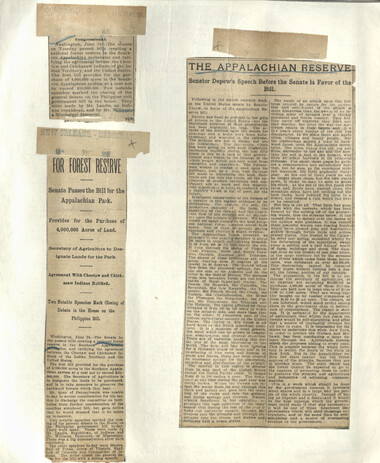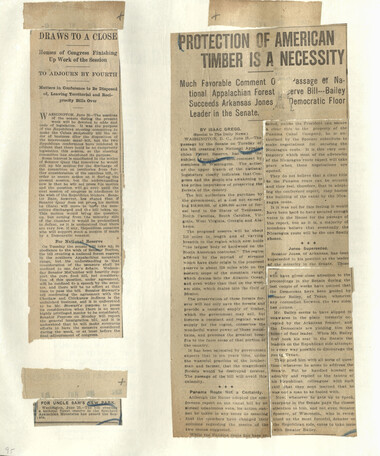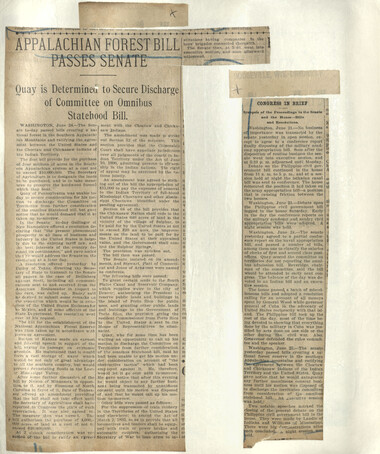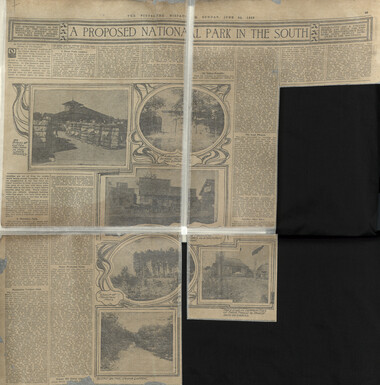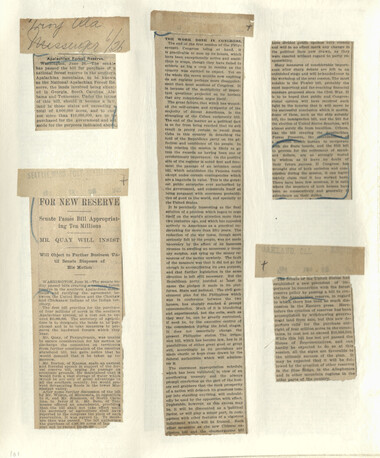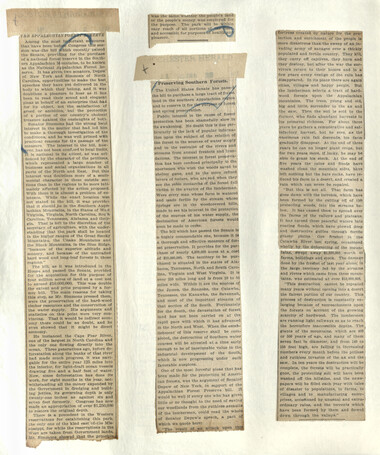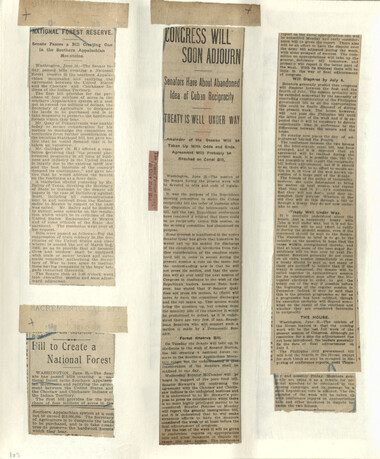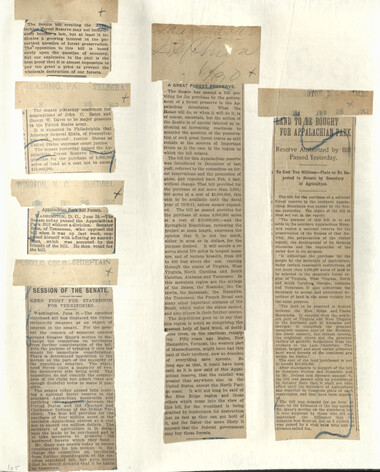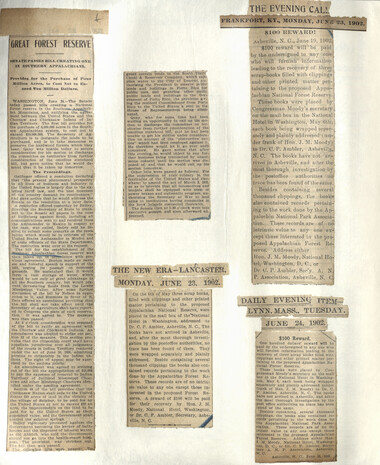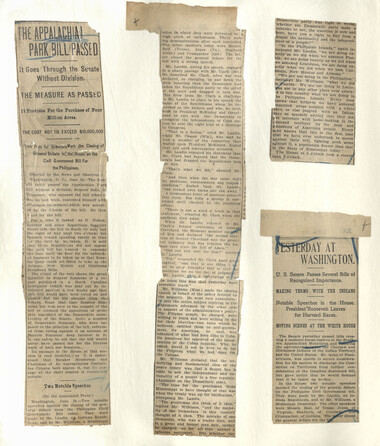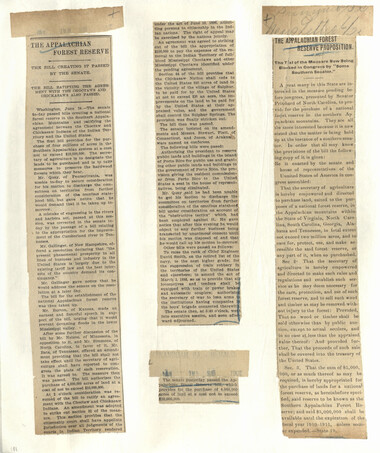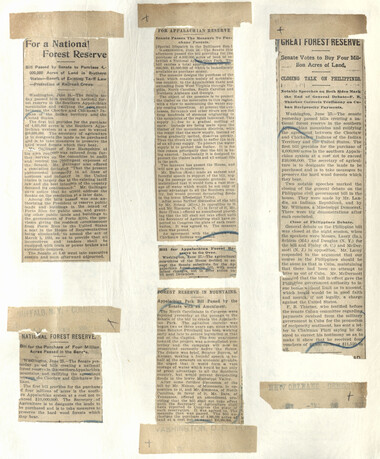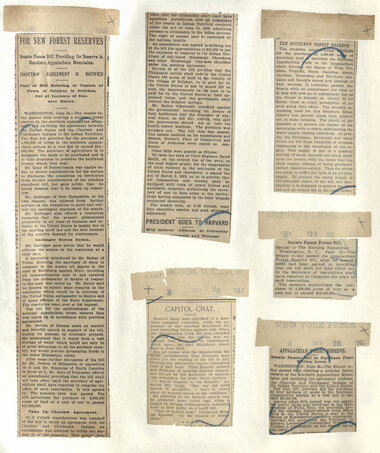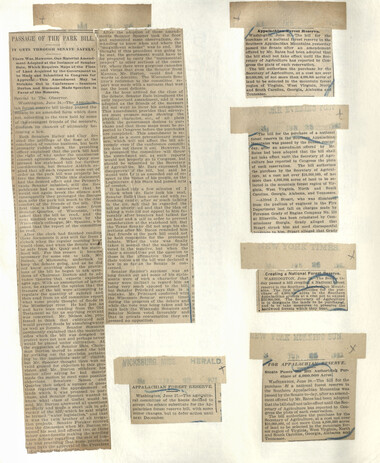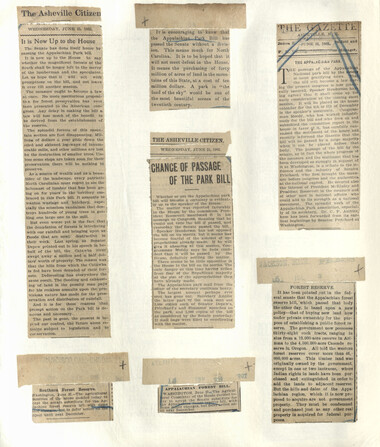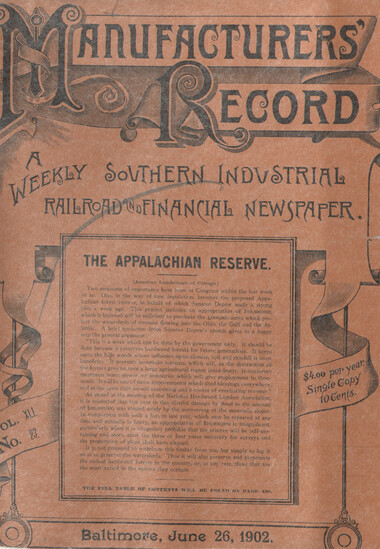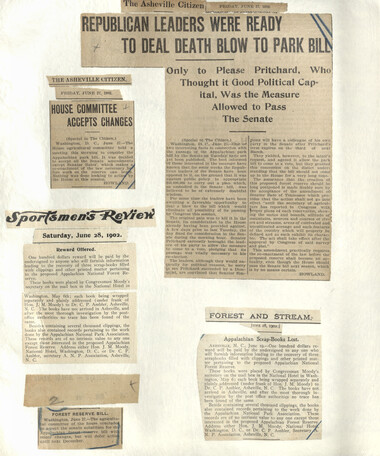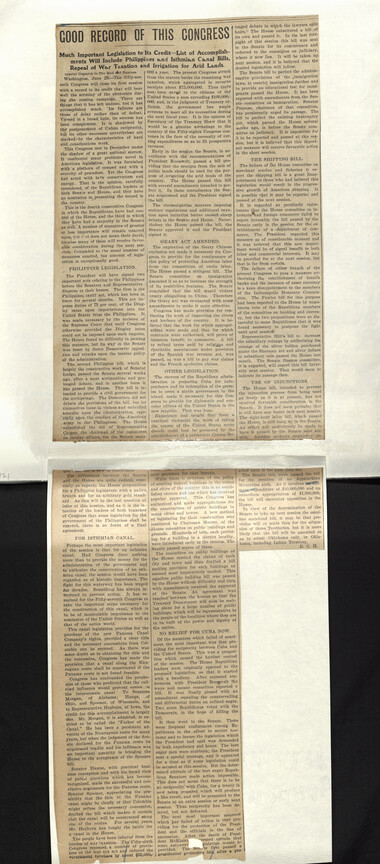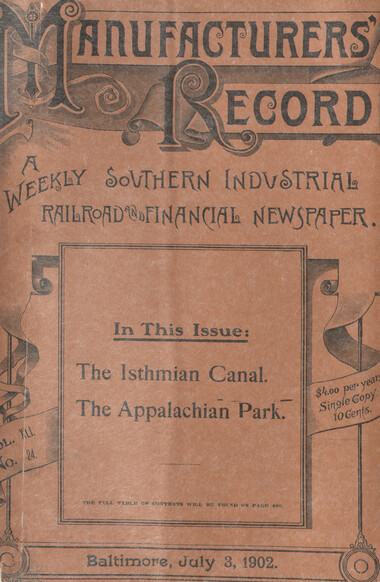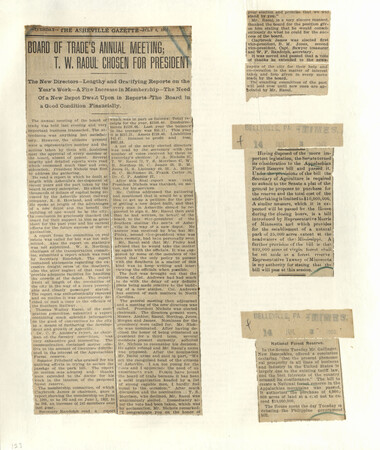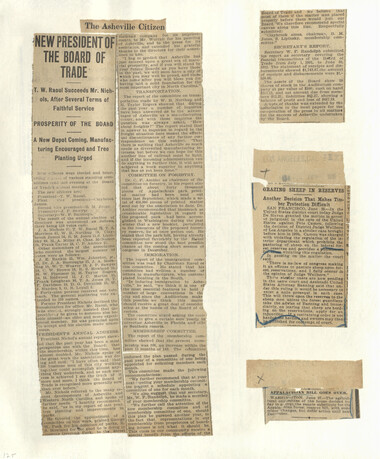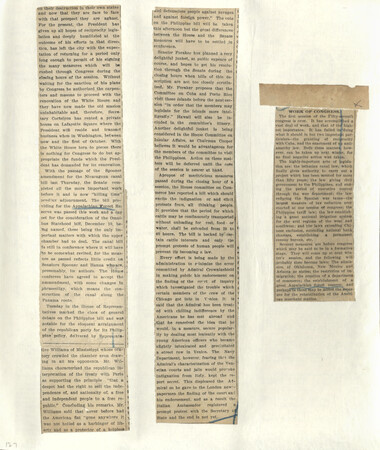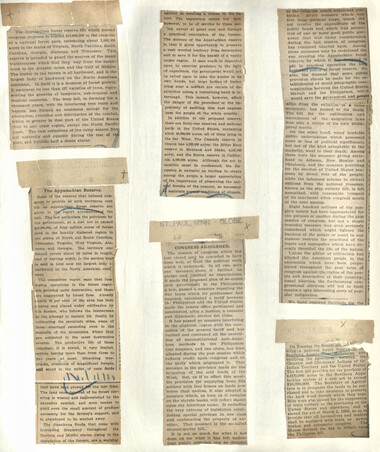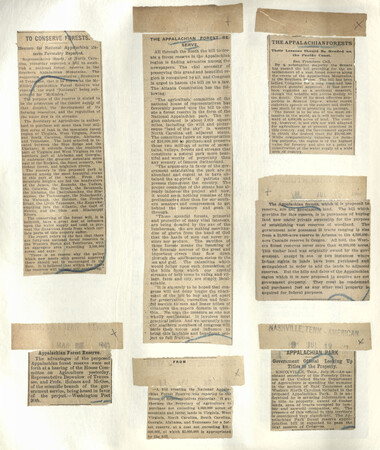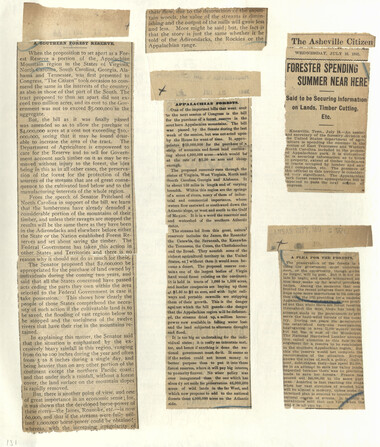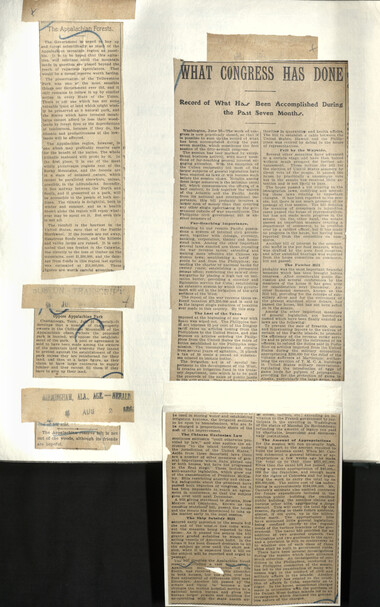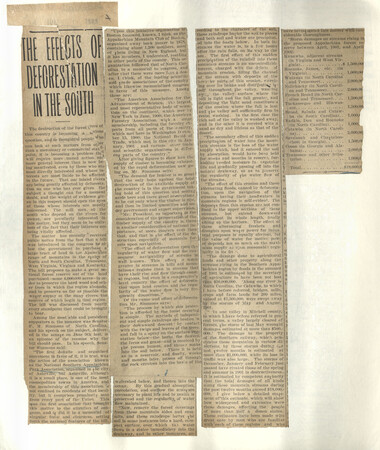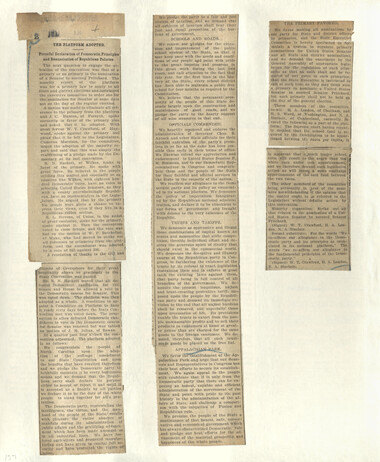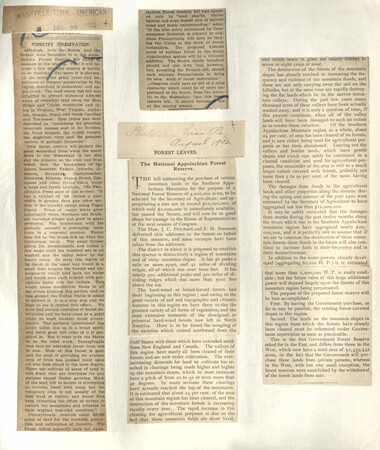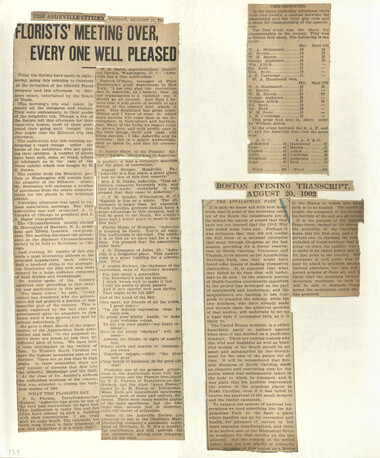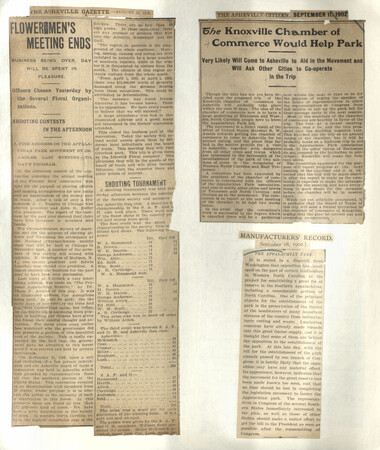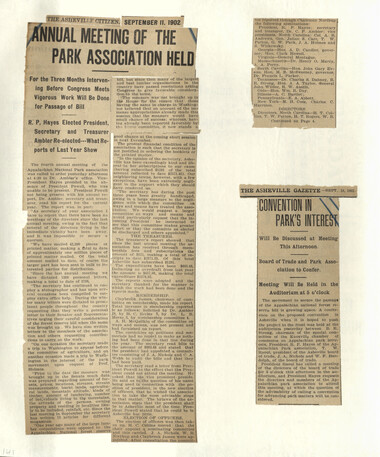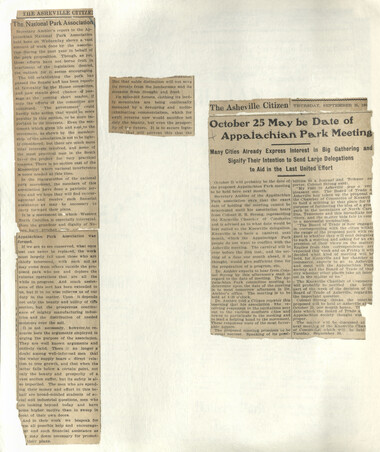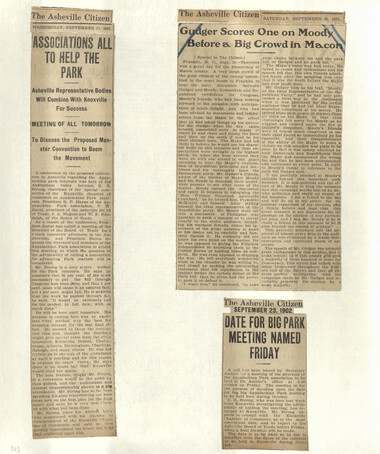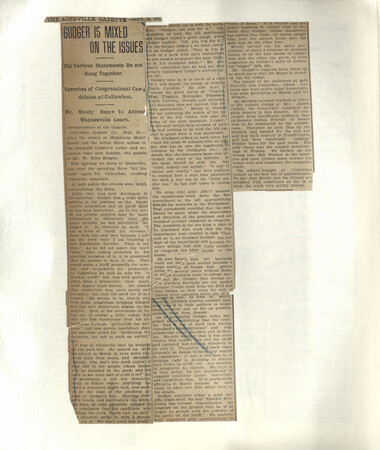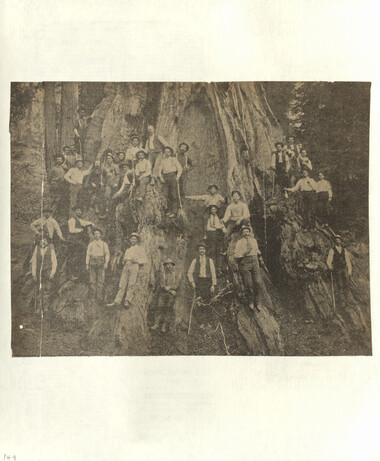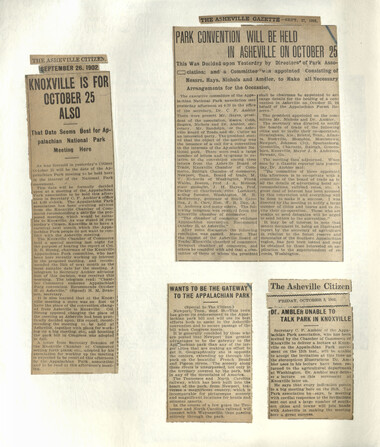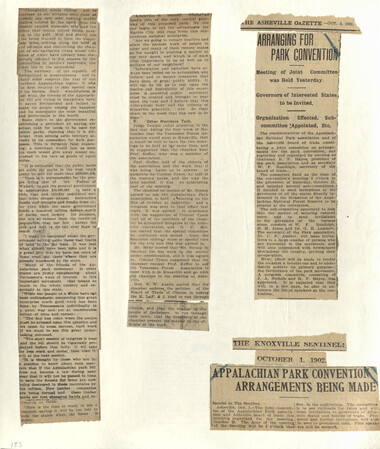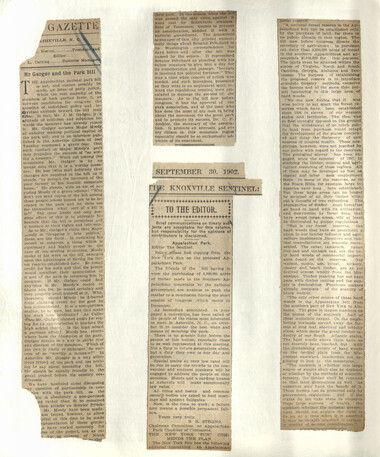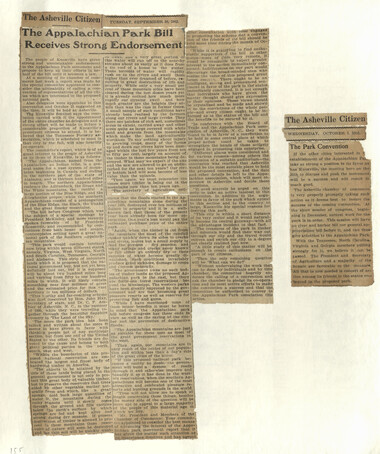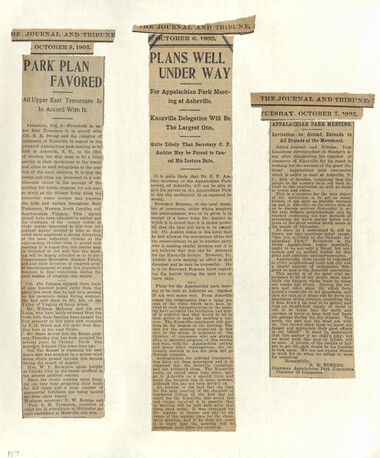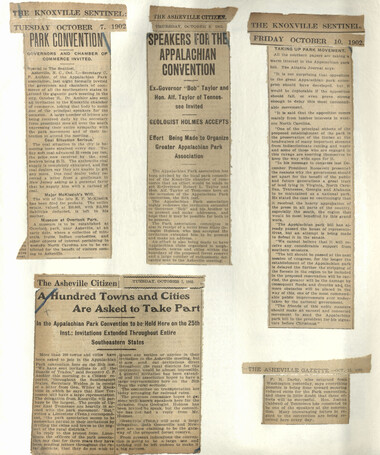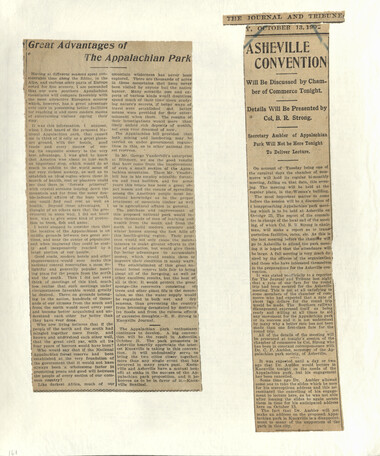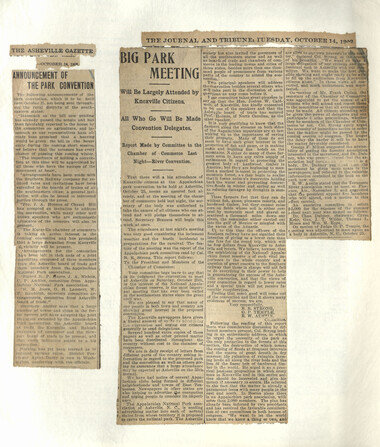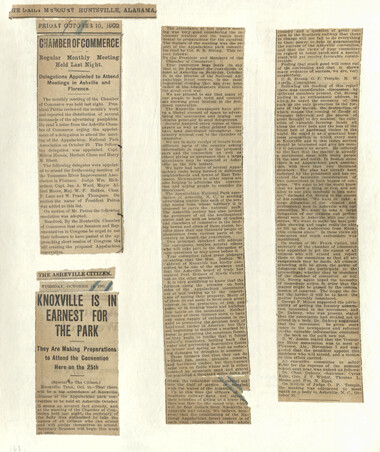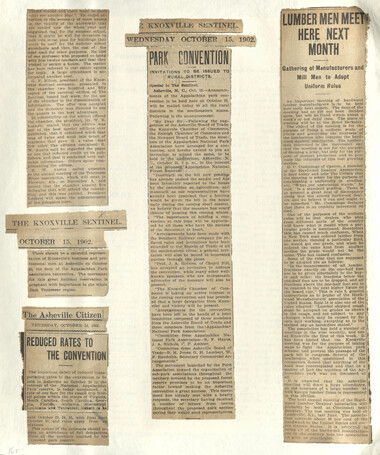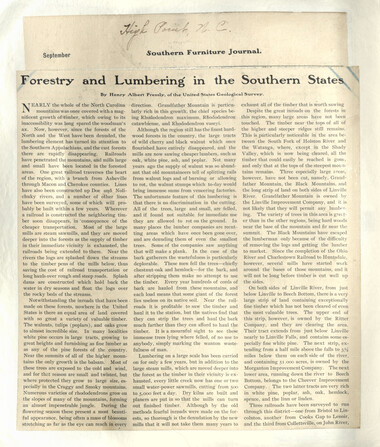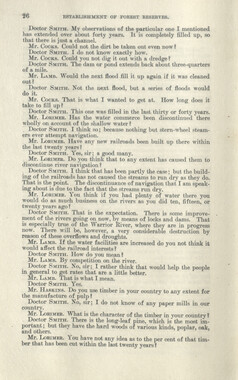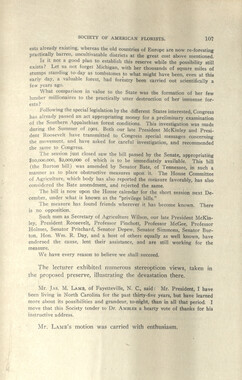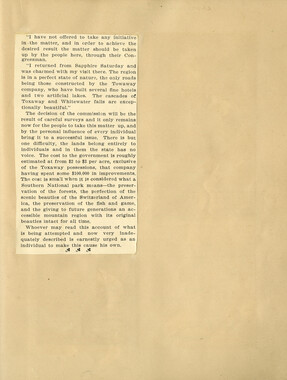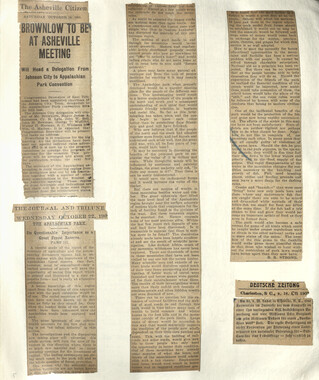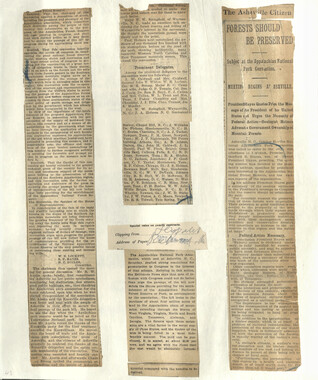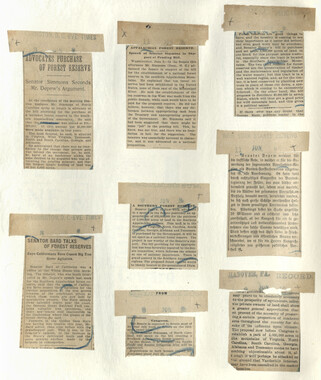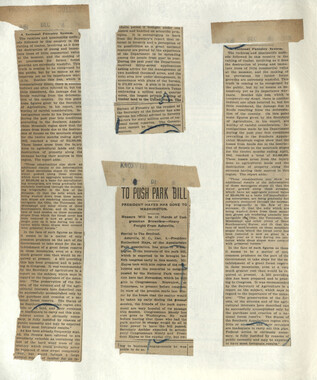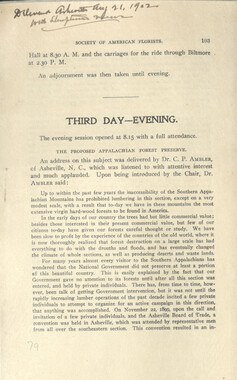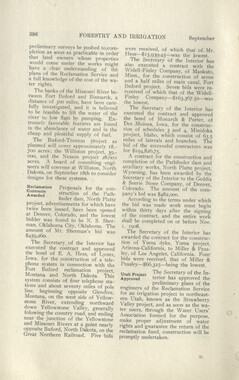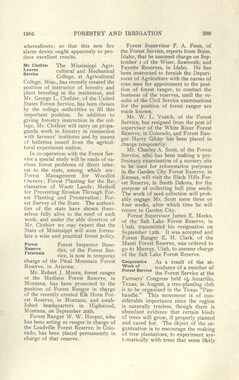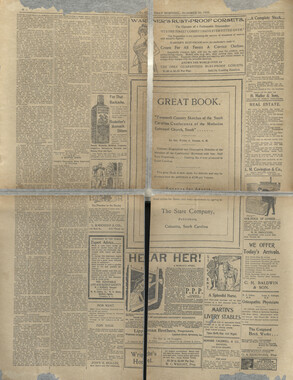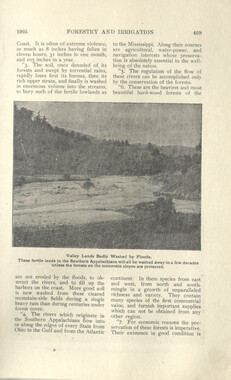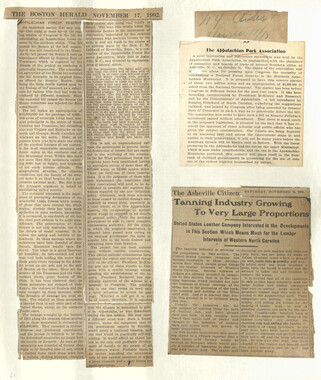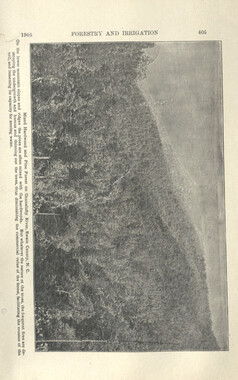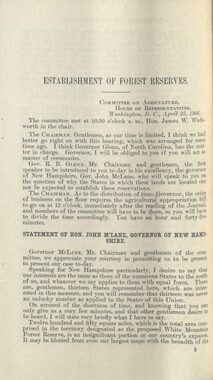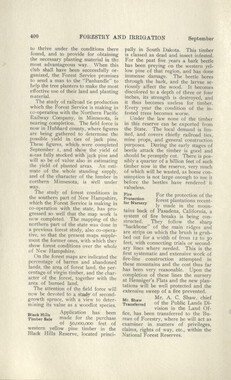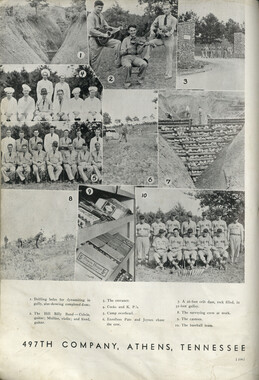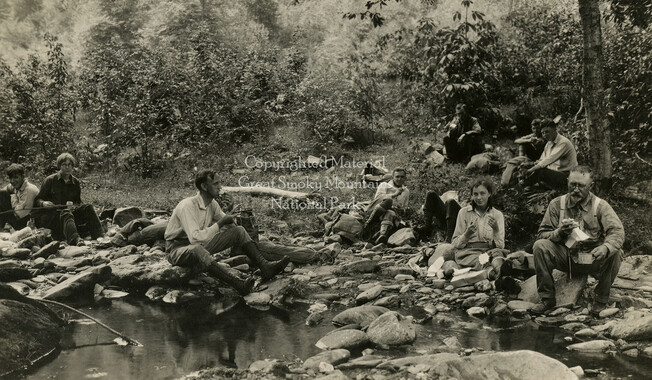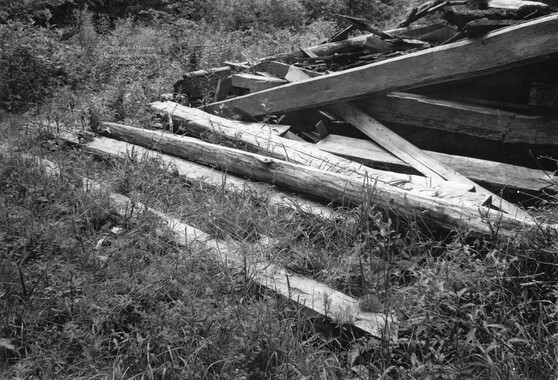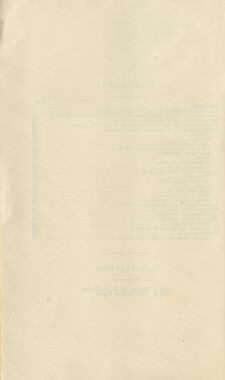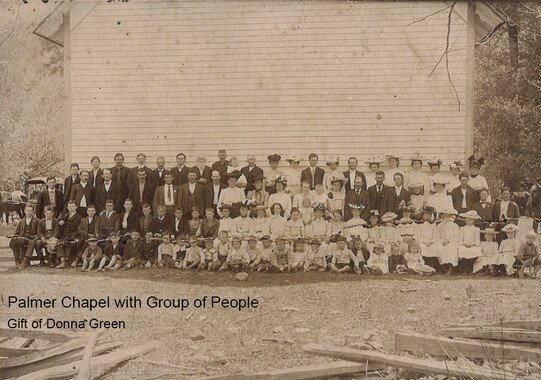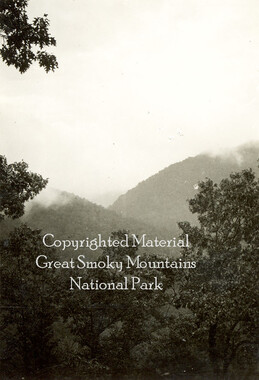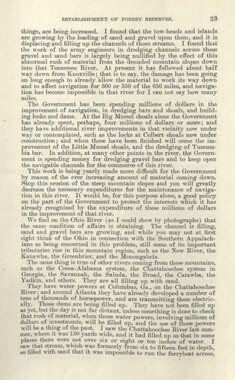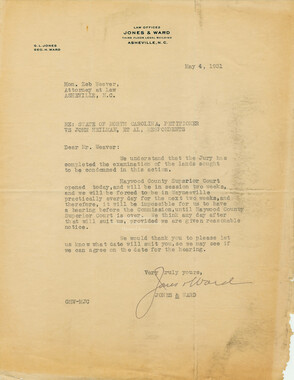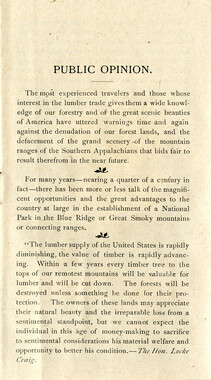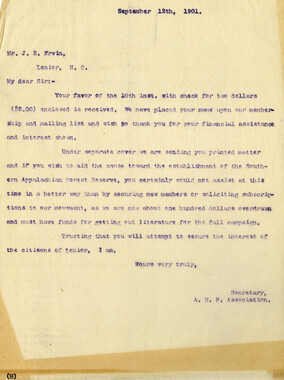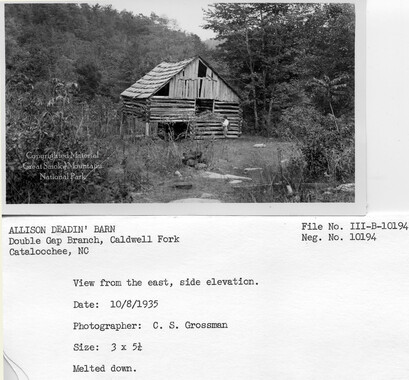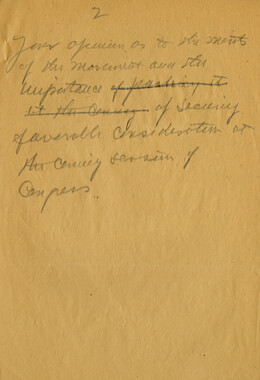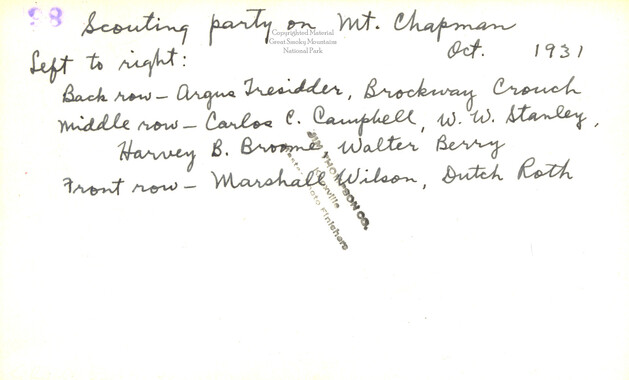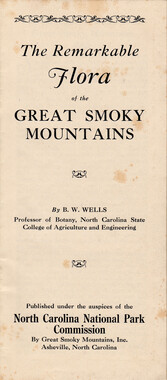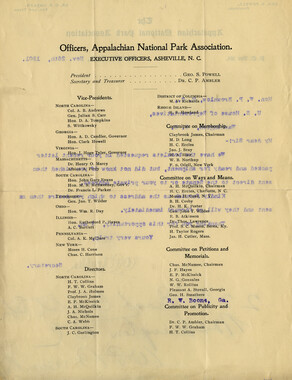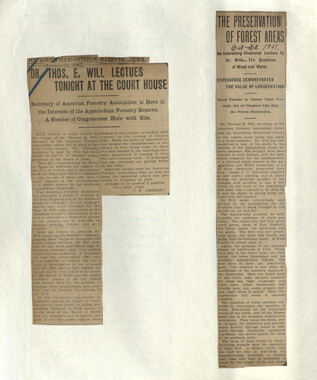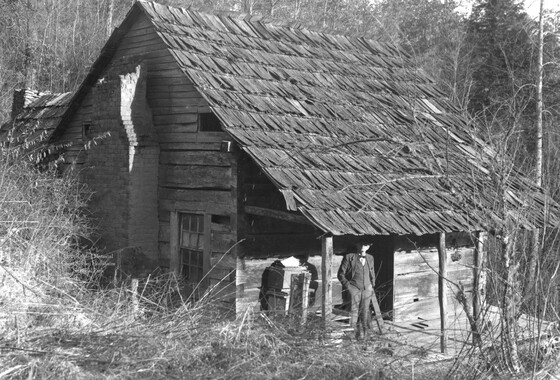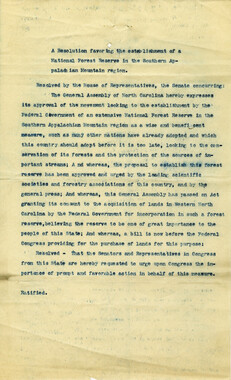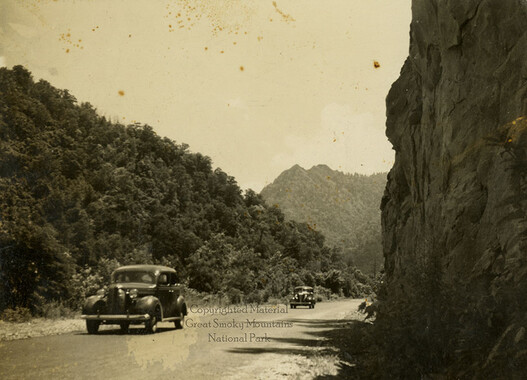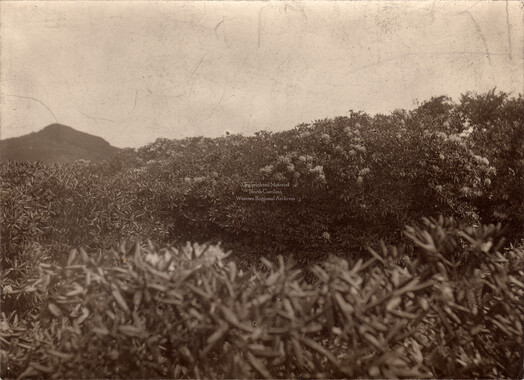Western Carolina University (20)
View all
- Canton Champion Fibre Company (2308)
- Cherokee Traditions (293)
- Civil War in Southern Appalachia (165)
- Craft Revival (1942)
- Great Smoky Mountains - A Park for America (2767)
- Highlights from Western Carolina University (430)
- Horace Kephart (941)
- Journeys Through Jackson (154)
- LGBTQIA+ Archive of Jackson County (26)
- Oral Histories of Western North Carolina (314)
- Picturing Appalachia (6772)
- Stories of Mountain Folk (413)
- Travel Western North Carolina (160)
- Western Carolina University Fine Art Museum Vitreograph Collection (129)
- Western Carolina University Herbarium (92)
- Western Carolina University: Making Memories (708)
- Western Carolina University Publications (2283)
- Western Carolina University Restricted Electronic Theses and Dissertations (146)
- Western North Carolina Regional Maps (71)
- World War II in Southern Appalachia (131)
University of North Carolina Asheville (6)
View all
- Appalachian National Park Association (53)
- Berry, Walter (76)
- Champion Fibre Company (5)
- Fromer, Irving Rhodes, 1913-1994 (70)
- Grant, George Alexander, 1891-1964 (96)
- Kephart, Horace, 1862-1931 (23)
- Masa, George, 1881-1933 (17)
- North Carolina Park Commission (105)
- Roth, Albert, 1890-1974 (142)
- Schenck, Carl Alwin, 1868-1955 (1)
- Stearns, I. K. (2)
- Thompson, James Edward, 1880-1976 (45)
- Weaver, Zebulon, 1872-1948 (55)
- Wilburn, Hiram Coleman, 1880-1967 (72)
- Allanstand Cottage Industries (0)
- Bennett, Kelly, 1890-1974 (0)
- Brasstown Carvers (0)
- Cain, Doreyl Ammons (0)
- Carver, George Washington, 1864?-1943 (0)
- Cathey, Joseph, 1803-1874 (0)
- Champion Paper and Fibre Company (0)
- Cherokee Indian Fair Association (0)
- Cherokee Language Program (0)
- Crittenden, Lorraine (0)
- Crowe, Amanda (0)
- Edmonston, Thomas Benton, 1842-1907 (0)
- Ensley, A. L. (Abraham Lincoln), 1865-1948 (0)
- George Butz (BFS 1907) (0)
- Goodrich, Frances Louisa (0)
- Heard, Marian Gladys (0)
- Kephart, Calvin, 1883-1969 (0)
- Kephart, Laura, 1862-1954 (0)
- Laney, Gideon Thomas, 1889-1976 (0)
- McElhinney, William Julian, 1896-1953 (0)
- Niggli, Josephina, 1910-1983 (0)
- Osborne, Kezia Stradley (0)
- Owens, Samuel Robert, 1918-1995 (0)
- Penland Weavers and Potters (0)
- Rhodes, Judy (0)
- Roberts, Vivienne (0)
- Sherrill's Photography Studio (0)
- Smith, Edward Clark (0)
- Southern Highland Handicraft Guild (0)
- Southern Highlanders, Inc. (0)
- Stalcup, Jesse Bryson (0)
- United States. Indian Arts and Crafts Board (0)
- USFS (0)
- Vance, Zebulon Baird, 1830-1894 (0)
- Western Carolina College (0)
- Western Carolina Teachers College (0)
- Western Carolina University (0)
- Western Carolina University. Mountain Heritage Center (0)
- Whitman, Walt, 1819-1892 (0)
- Williams, Isadora (0)
- 1810s (1)
- 1840s (1)
- 1850s (2)
- 1860s (3)
- 1870s (4)
- 1880s (7)
- 1890s (64)
- 1900s (294)
- 1910s (227)
- 1920s (461)
- 1930s (1585)
- 1940s (82)
- 1950s (15)
- 1960s (13)
- 1970s (47)
- 1980s (14)
- 1990s (17)
- 2000s (31)
- 2010s (1)
- 1600s (0)
- 1700s (0)
- 1800s (0)
- 1820s (0)
- 1830s (0)
- 2020s (0)
- Appalachian Region, Southern (80)
- Asheville (N.C.) (1)
- Avery County (N.C.) (6)
- Blount County (Tenn.) (159)
- Buncombe County (N.C.) (204)
- Cherokee County (N.C.) (10)
- Clay County (N.C.) (3)
- Graham County (N.C.) (108)
- Great Smoky Mountains National Park (N.C. and Tenn.) (438)
- Haywood County (N.C.) (263)
- Henderson County (N.C.) (13)
- Jackson County (N.C.) (58)
- Knox County (Tenn.) (21)
- Knoxville (Tenn.) (11)
- Lake Santeetlah (N.C.) (10)
- Macon County (N.C.) (25)
- Madison County (N.C.) (14)
- McDowell County (N.C.) (5)
- Mitchell County (N.C.) (7)
- Polk County (N.C.) (2)
- Qualla Boundary (22)
- Rutherford County (N.C.) (16)
- Swain County (N.C.) (516)
- Transylvania County (N.C.) (36)
- Watauga County (N.C.) (2)
- Waynesville (N.C.) (2)
- Yancey County (N.C.) (34)
- Aerial Views (3)
- Articles (1)
- Artifacts (object Genre) (4)
- Bibliographies (1)
- Clippings (information Artifacts) (77)
- Drawings (visual Works) (174)
- Envelopes (2)
- Financial Records (9)
- Fliers (printed Matter) (34)
- Guidebooks (1)
- Interviews (12)
- Land Surveys (102)
- Letters (correspondence) (219)
- Manuscripts (documents) (91)
- Maps (documents) (86)
- Memorandums (14)
- Minutes (administrative Records) (20)
- Negatives (photographs) (282)
- Newsletters (12)
- Paintings (visual Works) (1)
- Pen And Ink Drawings (1)
- Photographs (1657)
- Portraits (40)
- Postcards (15)
- Publications (documents) (107)
- Scrapbooks (3)
- Sheet Music (1)
- Songs (musical Compositions) (2)
- Sound Recordings (7)
- Speeches (documents) (11)
- Transcripts (46)
- Aerial Photographs (0)
- Albums (books) (0)
- Biography (general Genre) (0)
- Cards (information Artifacts) (0)
- Crafts (art Genres) (0)
- Depictions (visual Works) (0)
- Design Drawings (0)
- Facsimiles (reproductions) (0)
- Fiction (general Genre) (0)
- Glass Plate Negatives (0)
- Internegatives (0)
- Newspapers (0)
- Occupation Currency (0)
- Periodicals (0)
- Personal Narratives (0)
- Plans (maps) (0)
- Poetry (0)
- Programs (documents) (0)
- Questionnaires (0)
- Slides (photographs) (0)
- Specimens (0)
- Text Messages (0)
- Tintypes (photographs) (0)
- Video Recordings (physical Artifacts) (0)
- Vitreographs (0)
- Appalachian National Park Association Records (336)
- Carlos C. Campbell Collection (282)
- Cataloochee History Project (65)
- George Masa Collection (89)
- Hiram C. Wilburn Papers (28)
- Historic Photographs Collection (236)
- Horace Kephart Collection (126)
- Humbard Collection (33)
- Jim Thompson Collection (44)
- Love Family Papers (11)
- Map Collection (12)
- R.A. Romanes Collection (10)
- Smoky Mountains Hiking Club Collection (616)
- Zebulon Weaver Collection (107)
- A.L. Ensley Collection (0)
- Appalachian Industrial School Records (0)
- Axley-Meroney Collection (0)
- Bayard Wootten Photograph Collection (0)
- Bethel Rural Community Organization Collection (0)
- Blumer Collection (0)
- C.W. Slagle Collection (0)
- Canton Area Historical Museum (0)
- Cherokee Studies Collection (0)
- Daisy Dame Photograph Album (0)
- Daniel Boone VI Collection (0)
- Doris Ulmann Photograph Collection (0)
- Elizabeth H. Lasley Collection (0)
- Elizabeth Woolworth Szold Fleharty Collection (0)
- Frank Fry Collection (0)
- Gideon Laney Collection (0)
- Hazel Scarborough Collection (0)
- Hunter and Weaver Families Collection (0)
- I. D. Blumenthal Collection (0)
- Isadora Williams Collection (0)
- Jesse Bryson Stalcup Collection (0)
- John B. Battle Collection (0)
- John C. Campbell Folk School Records (0)
- John Parris Collection (0)
- Judaculla Rock project (0)
- Kelly Bennett Collection (0)
- Major Wiley Parris Civil War Letters (0)
- McFee-Misemer Civil War Letters (0)
- Mountain Heritage Center Collection (0)
- Norburn - Robertson - Thomson Families Collection (0)
- Pauline Hood Collection (0)
- Pre-Guild Collection (0)
- Qualla Arts and Crafts Mutual Collection (0)
- Rosser H. Taylor Collection (0)
- Samuel Robert Owens Collection (0)
- Sara Madison Collection (0)
- Sherrill Studio Photo Collection (0)
- Stories of Mountain Folk - Radio Programs (0)
- The Reporter, Western Carolina University (0)
- Venoy and Elizabeth Reed Collection (0)
- WCU Gender and Sexuality Oral History Project (0)
- WCU Mountain Heritage Center Oral Histories (0)
- WCU Oral History Collection - Mountain People, Mountain Lives (0)
- WCU Students Newspapers Collection (0)
- Western North Carolina Tomorrow Black Oral History Project (0)
- William Williams Stringfield Collection (0)
- Appalachian Trail (22)
- Church buildings (9)
- Civilian Conservation Corps (U.S.) (91)
- Dams (21)
- Floods (1)
- Forest conservation (11)
- Forests and forestry (42)
- Great Smoky Mountains National Park (N.C. and Tenn.) (82)
- Hunting (2)
- Logging (25)
- Maps (74)
- North Carolina -- Maps (5)
- Postcards (15)
- Railroad trains (8)
- Sports (4)
- Storytelling (2)
- Waterfalls -- Great Smoky Mountains (N.C. and Tenn.) (39)
- African Americans (0)
- Artisans (0)
- Cherokee art (0)
- Cherokee artists -- North Carolina (0)
- Cherokee language (0)
- Cherokee pottery (0)
- Cherokee women (0)
- College student newspapers and periodicals (0)
- Dance (0)
- Education (0)
- Folk music (0)
- Forced removal, 1813-1903 (0)
- Gender nonconformity (0)
- Landscape photography (0)
- Mines and mineral resources (0)
- Paper industry (0)
- Pottery (0)
- Rural electrification -- North Carolina, Western (0)
- School integration -- Southern States (0)
- Segregation -- North Carolina, Western (0)
- Slavery (0)
- Weaving -- Appalachian Region, Southern (0)
- Wood-carving -- Appalachian Region, Southern (0)
- World War, 1939-1945 (0)
- Sound (7)
- StillImage (2172)
- Text (655)
- MovingImage (0)
Appalachian National Park Association Newspaper Clippings, 1899-1902
Item
Item’s are ‘child’ level descriptions to ‘parent’ objects, (e.g. one page of a whole book).
-
-
iiy he m FORESTRY PROTECTION. Recent investigations have shown iteful methods of lumbering | and unchecked fires arc threatening the n of the forest in the southern Appalachians. The heart of this ; res-k>r^*Ty^?r,,"hi west North Carolina | and eastern Tennessee, covets an j of about 15,00(1 square miles and con- j tains not only the grandest mountain scenery east of the Mississippi River, but a variety and wealth of forest ' growth to be found in few other parts of the country. Here the trees of north- :uid s»uthetn speeies mingle, and here many of the important rivers of I the South gather their waters, which afterwards used for power and supply. The importance of these rivers has of late years become more thoroughly understood from the results of the measurements to ascertain the volume of their flow, which the United States Geological Survey is conducting, and also the part played by the forests in icting their head waters and helping to equalize their flow. Thus, the ction of these forest is of great Importance, not only for the wood, but tor the water supply of the South. The United States Bureau of Forestry, e a study of the conditions in southern Appalachian region, and recommendations for the tica! care of the standing timber in tiggestions lo cutting which will pre- not destroy the fore the same ..try protection problem which, in . is engaging the ;. r.-ii Bureau of For- ilution of this local prob- nwnership ol it of South Jersey and a late policy of protection WASTE OF APPALACHIAN FORI iiUMiiif iiiiiij ii'Wir Recent investigations nave' shown that wasteful methods of lumbering and unchecked fires are threatening the destruction el' the forest in the southern Appalachian?. The heart of this region, lying in western North Carolina and eastern Ten- bout 15.000 not only the east of the arid wealth of forest growth to be found in few other Ufitry. Here the tie northern and southern species mingle, and here many of the important rivers of the South gather their waters, which are afterward used fur power and supply. The importance of these rivers lias of late years become more thoroughly understood from the results of the measurements to ascertain the volume of their flow, which the United States geological survey is conducting, ami also the part played by the forests in protecting theh- headwaters and helping to equalize their flow. Thus, the protection of these forests is of great importance, not only for the wood, but also for the water supply of the South. The United States bureau of forestry has made a study of the conditions in the southern Appalachian region, and has offered recommendations for the practical care of the standing; timber in a recent bulletin, and made suggestions for its scientific cutting which will preserve and.JMtMMMNMNtin^, forests. The Asheville Citizen TUESDAY, MARCH 18, 1902. PRITGHARD SURE OF PASSAGE OF PARK RILL Senator Pritehard thinks that the passage by Congress of the Appalachian park bill is an assured thing. "I am very much inclined to the opinion," he said this morning to a Citizen reporter, "that the bill will go through. A favorable report of it has been made by the House committee and it is to come up tomorrow before the agriculture committee for public hearing. "I have had a great many ask me about the bill," continued Senator Pritehard, "and I expect to give out a statement about it within a short time. It does not seem to be clearly understood." When asked about the proposed change of name of the park, Senator Pritehard preferred not to say anything about it. In fact, he said he nothing about it only from what In- had heard. Senator Pritehard left this afternoon, in Washington. The Asheville Citizen i THURSDAY, MARCH 20, 1902. PARK RILL NOW WITH A SUR-COMMITTEE The Chairman of This Favors It and Prospects Are Now Very Bright (Special to The Citizen.) Washington, D. C, March 20.—At the executive session of the House agricultural committee yesterday, following the hearing on the Appalachian park bill, the latter measure was referred to the sub-committee of which Mr. Henry of Connecticut is the chairman. According to Mr. Moody, Henry and the other members of the sub-committee | are favorable to the bill, which he confidently predicts, will be favorably rej ported. The Appalachian Reserve WASHINGTON, March 19.—The advantages of the proposed Appalachian Fores! •ve were set forth at a hearing of the^ House Committee on Agriculturs to-dayl Representative Brownlow, of Tennessee,! and Processors Holmes and McGee, of the scientific branch of the Government service, being heard in favor of the project. ■ THE ASHEVILLE CITIZEN WEDNESDAY, MARCH 19, VM2. TALKING IN FAVOR OFTHEPARKTHIS AFTERNOON W, J. McGee, Attorney Semour of Knoxville, Prof. Pinchot and Dr. Ambler There THE HEARING WAS COMPLETE Kluttz and Moody Present, ' Our Two Senators Were Absent inl to The Citizen.) Washington, D. C, March .1'.).—The Ing t5n the Appalachian Park bill i in Hie HouBe con mi ; on agri- hortly after 10 o'clock today for some time during tbfc W. J. McGee of the Bureau of Amer- lolog'y, An ymour of t (lie, Prof. Pinchot and Dr. C. P. Ambler of Ash' vill re among the \ lie left no phase of the pro- i-il. ;i,nl Congressman Moodj end Kluttz and by en 11 lei .lie!., brought out iiellk- The loiter called attention to tho of mou' land were alreadj the governm -.tow ■HI ii. h<lr i.f i in. Nor i olina Sena- . presenta- tlve Blackburn, Senator Pritchari rived thii morning and will see the lenl il: b'-li.i If nl' .1 nil:;.- AlliimS if it ire lime of tin- chief executive HOWLAND. 1 APAIiACHIAN I'AIIK. >« Explained to the Hoi ait-tee on Apj-ricuUm-c. I lAdvantiiBi'd (iimm WASHINGTON, March if).--The VSWitages <>f 'he ; forth at 'ng- of tie !> ■•• committee on rh ult ore : ,i atlve ] iro low of Teniics,.-. and I' Holmes and Mel:■ c if the branch of the gove: nment service, b. I in favor of the pro CECIL RHO»)T,S' CONDITION C.wr, 'rnvuv .. • I """■* Appaladutr F"""* Reserve. Th? advantages of fl»e proposed AppaX lachian forest reserve v^ere set forth at al hearing of the House Committee on Agi-i-1 culture yesterday, Representative Brown-] low, of Tennessee, and Profs. Holmes and McGee, of the scientific branch of thjl rnment service, being heard in favj of the proj' """"w^ I
Object
Object’s are ‘parent’ level descriptions to ‘children’ items, (e.g. a book with pages).
-
This is one of two notebooks assembled by the Appalachian National Park Association that includes documents and news clipping about the organization. The Appalachian National Park Association was formed in 1899 for the purpose of promoting the idea of a national park in the eastern U.S. Although housed in Asheville, North Carolina, the organization was a multi-state effort, attracting representatives from seven southern states. One of the highlights of the group’s activities was a convention held in 1902 to which 1,500 people attended. The association lobbied Congress for the creation of a park, but with limited success. The association disbanded in 1905.
-

